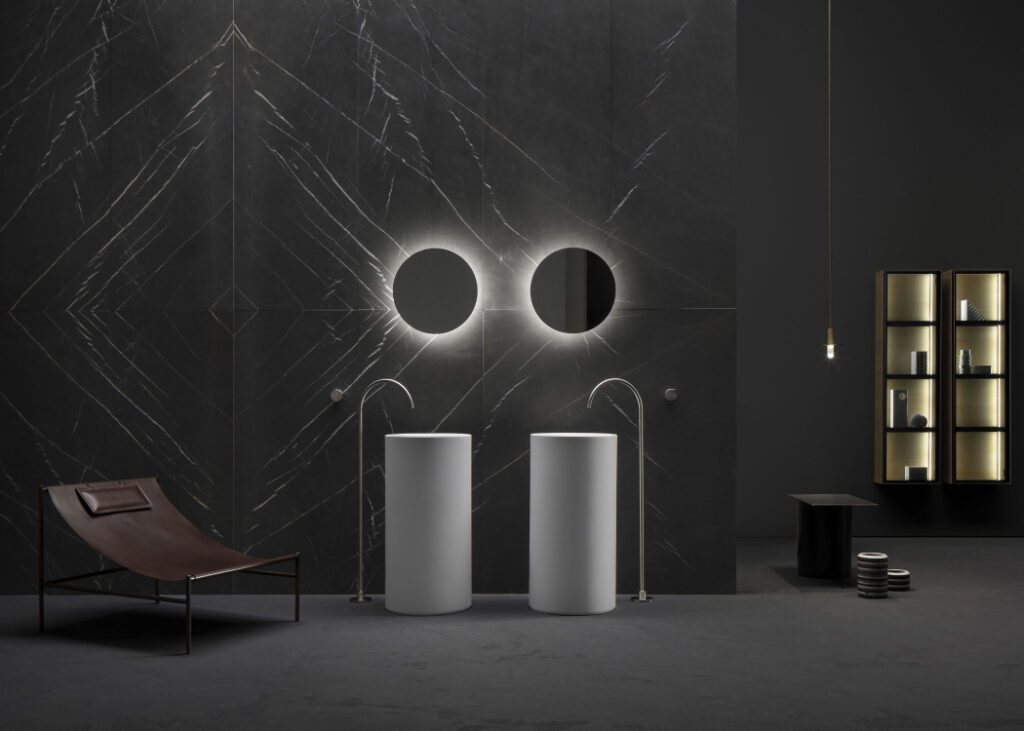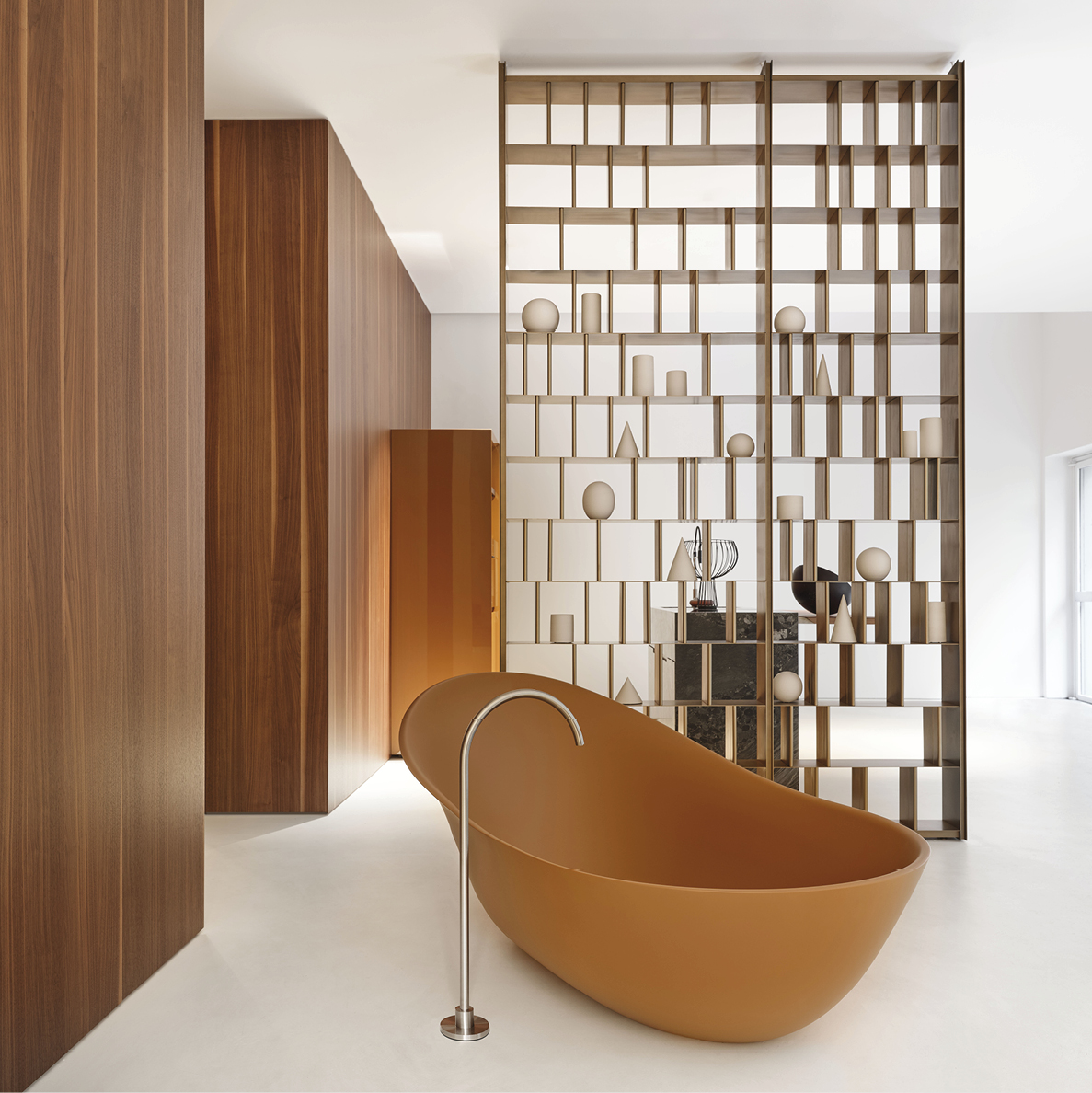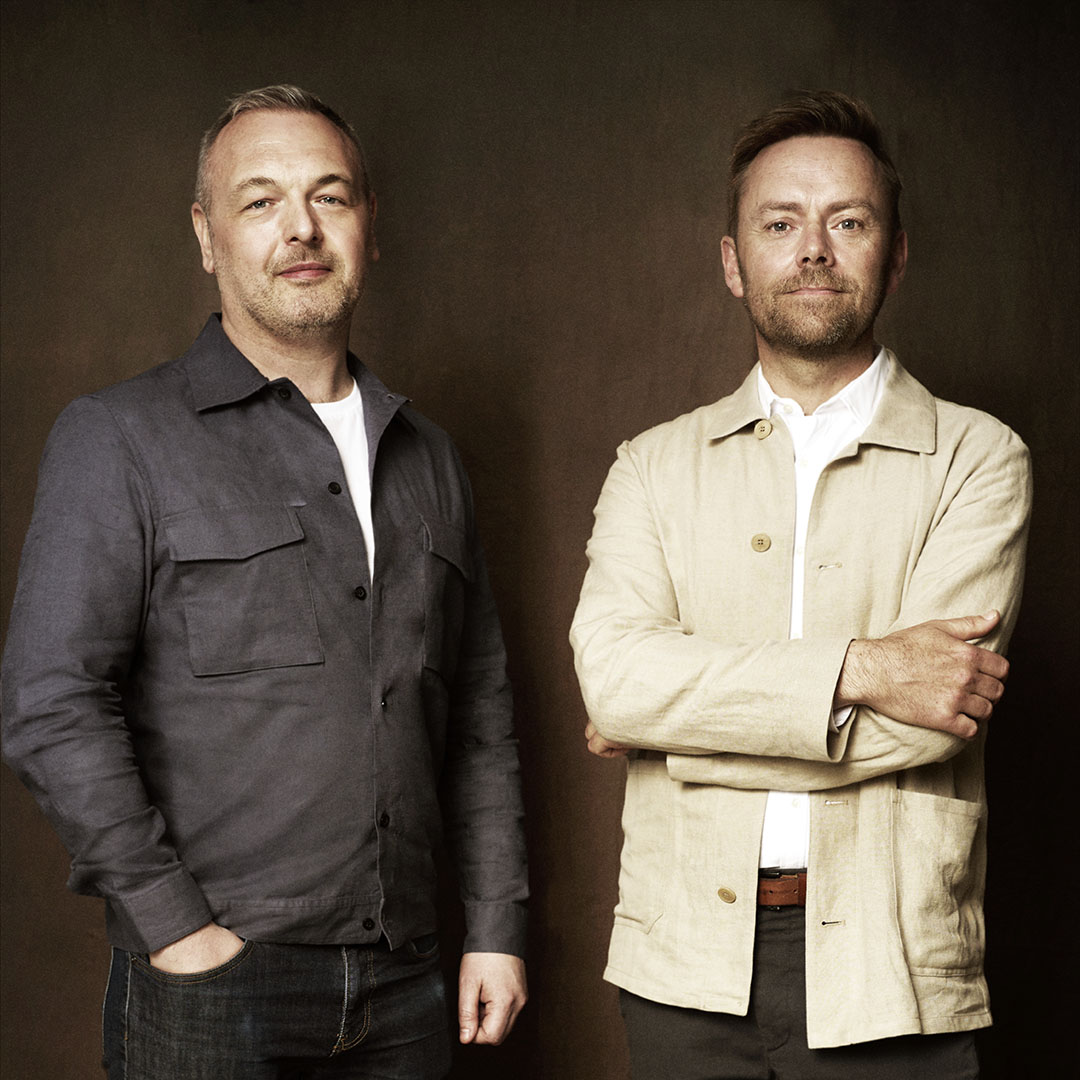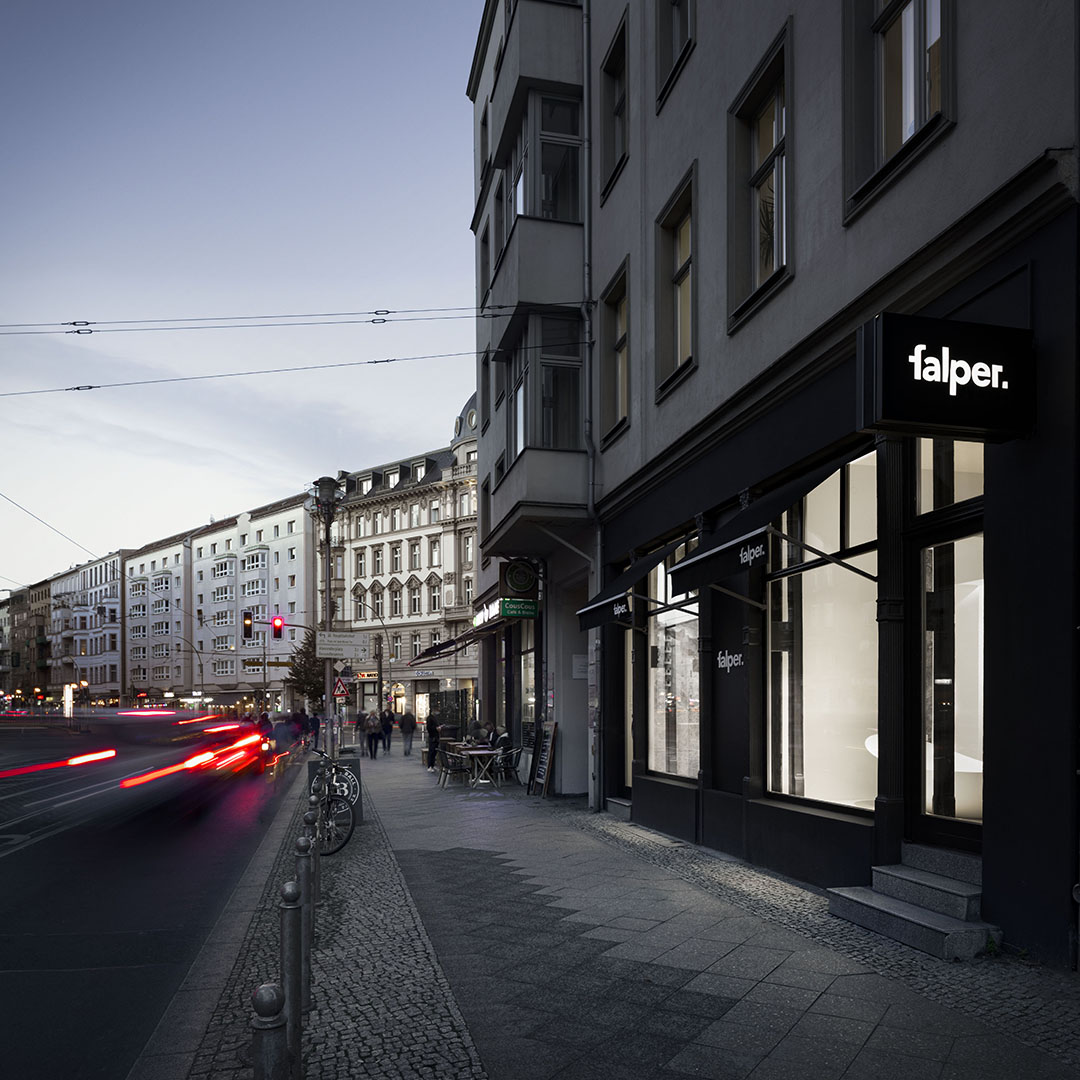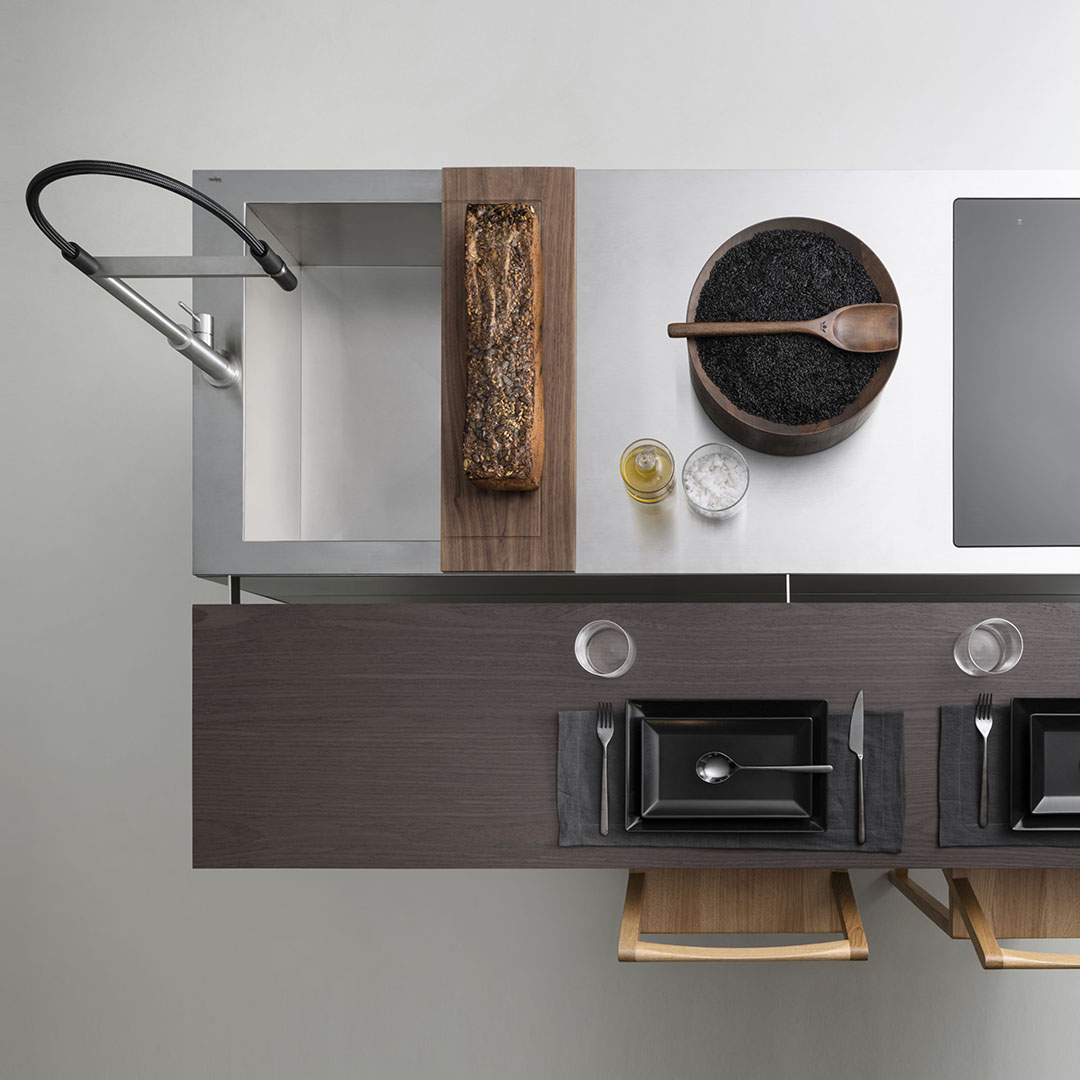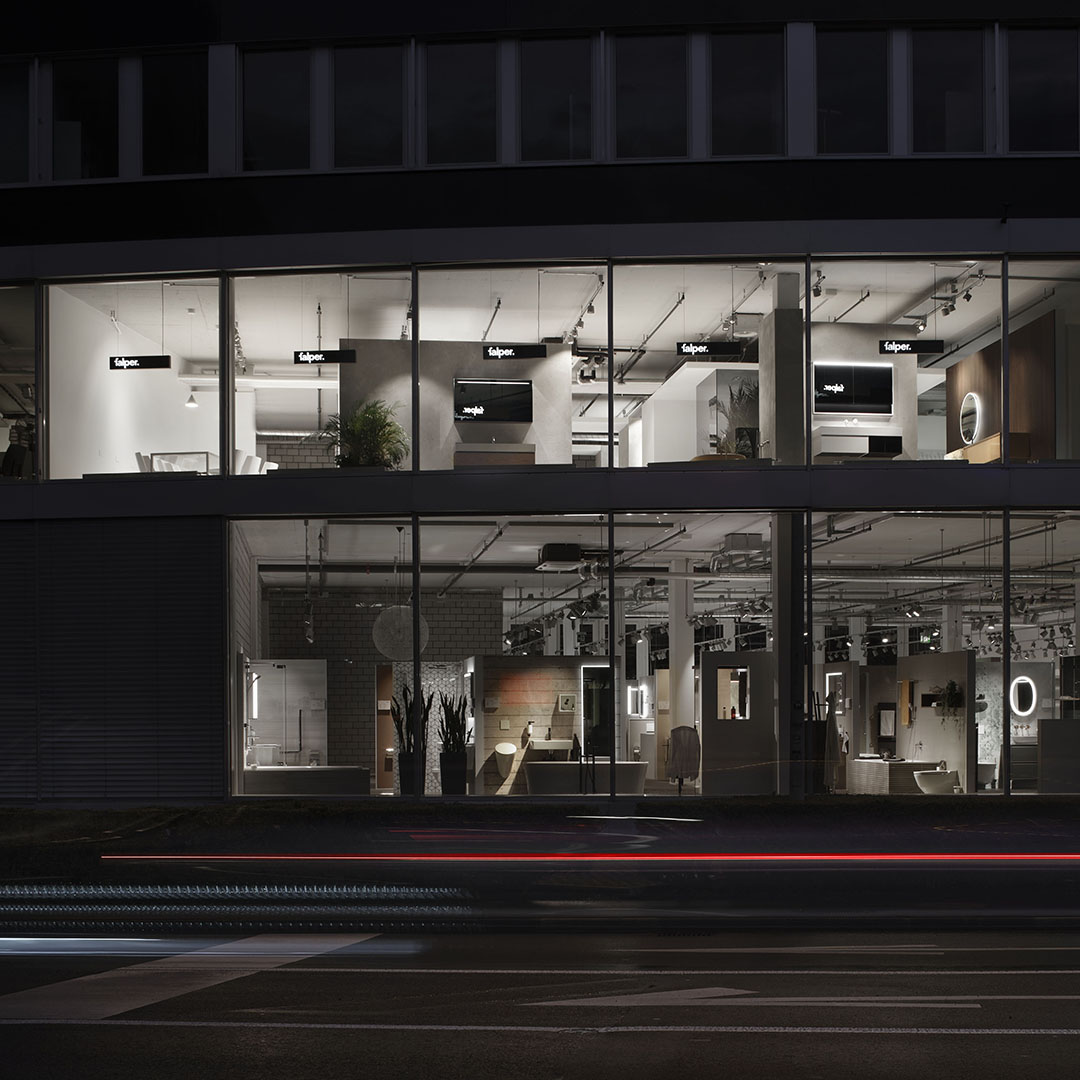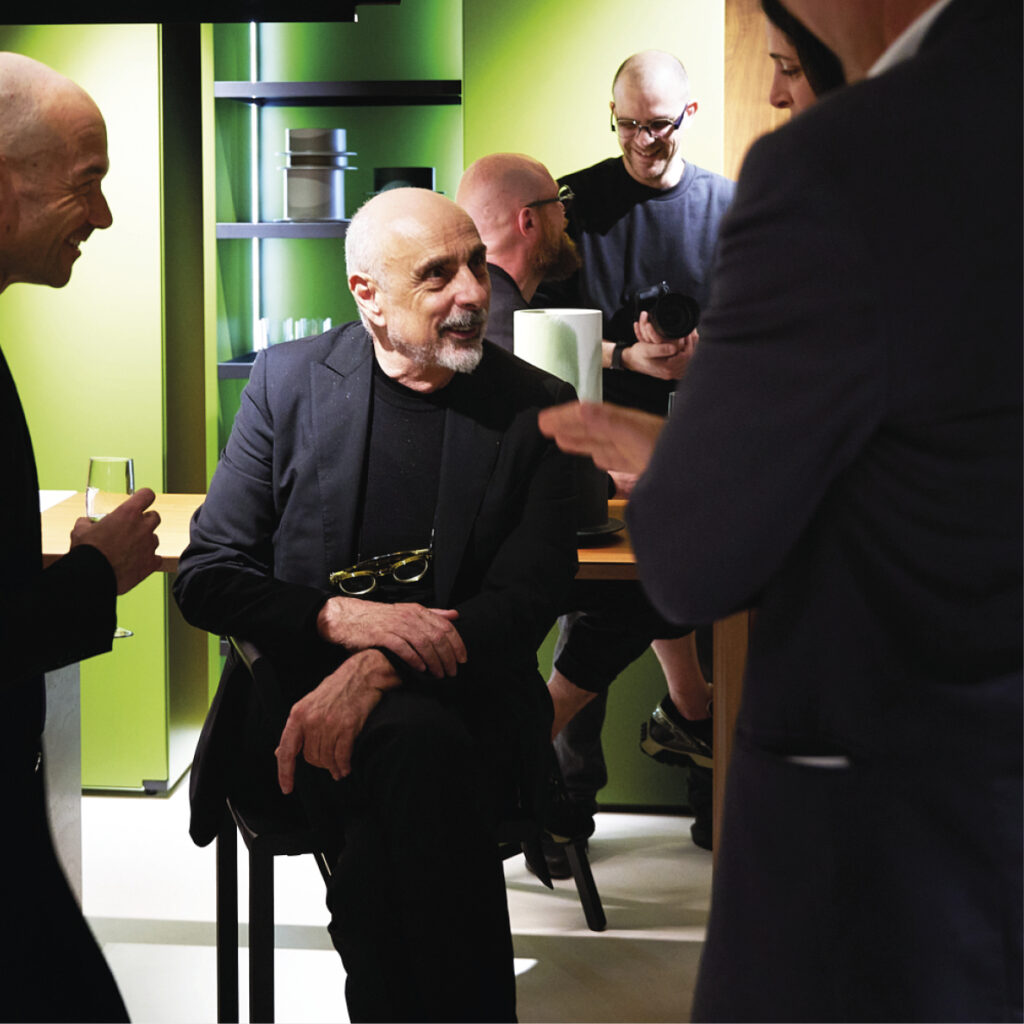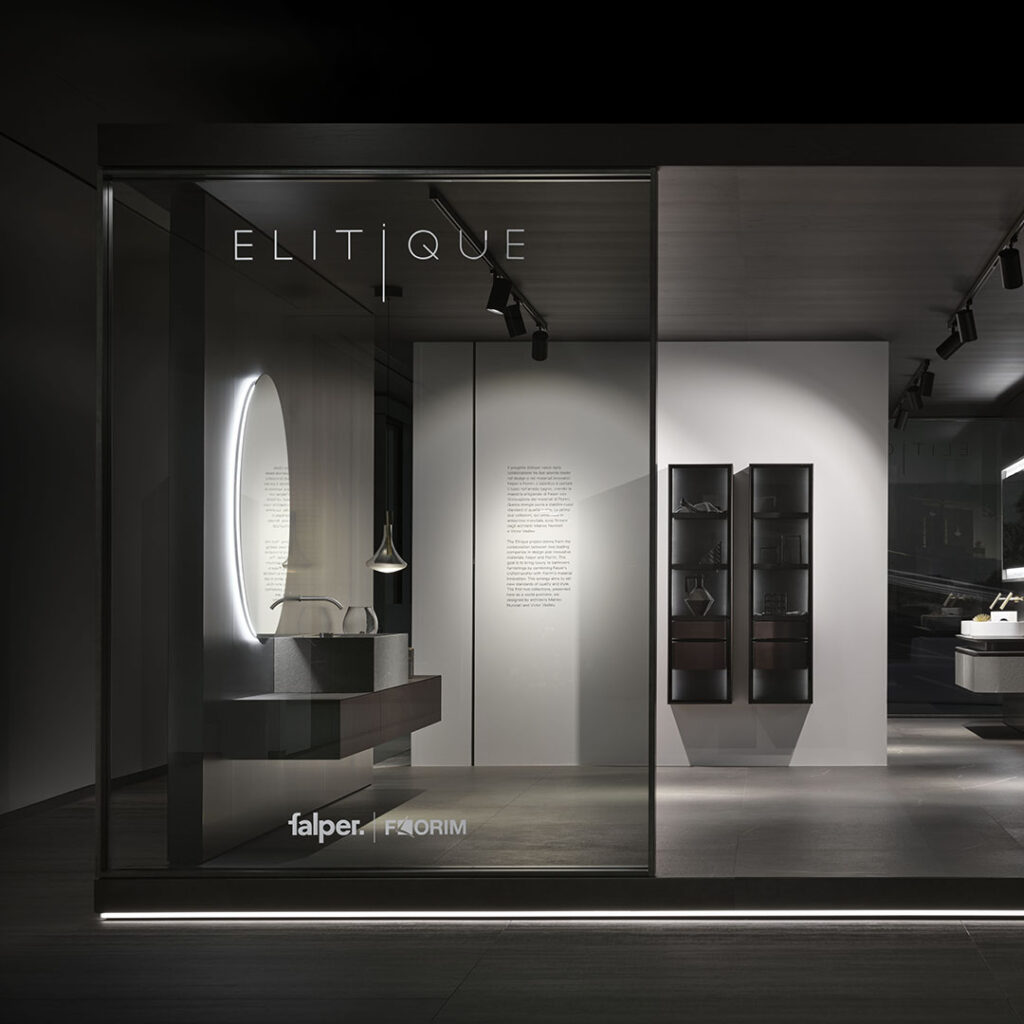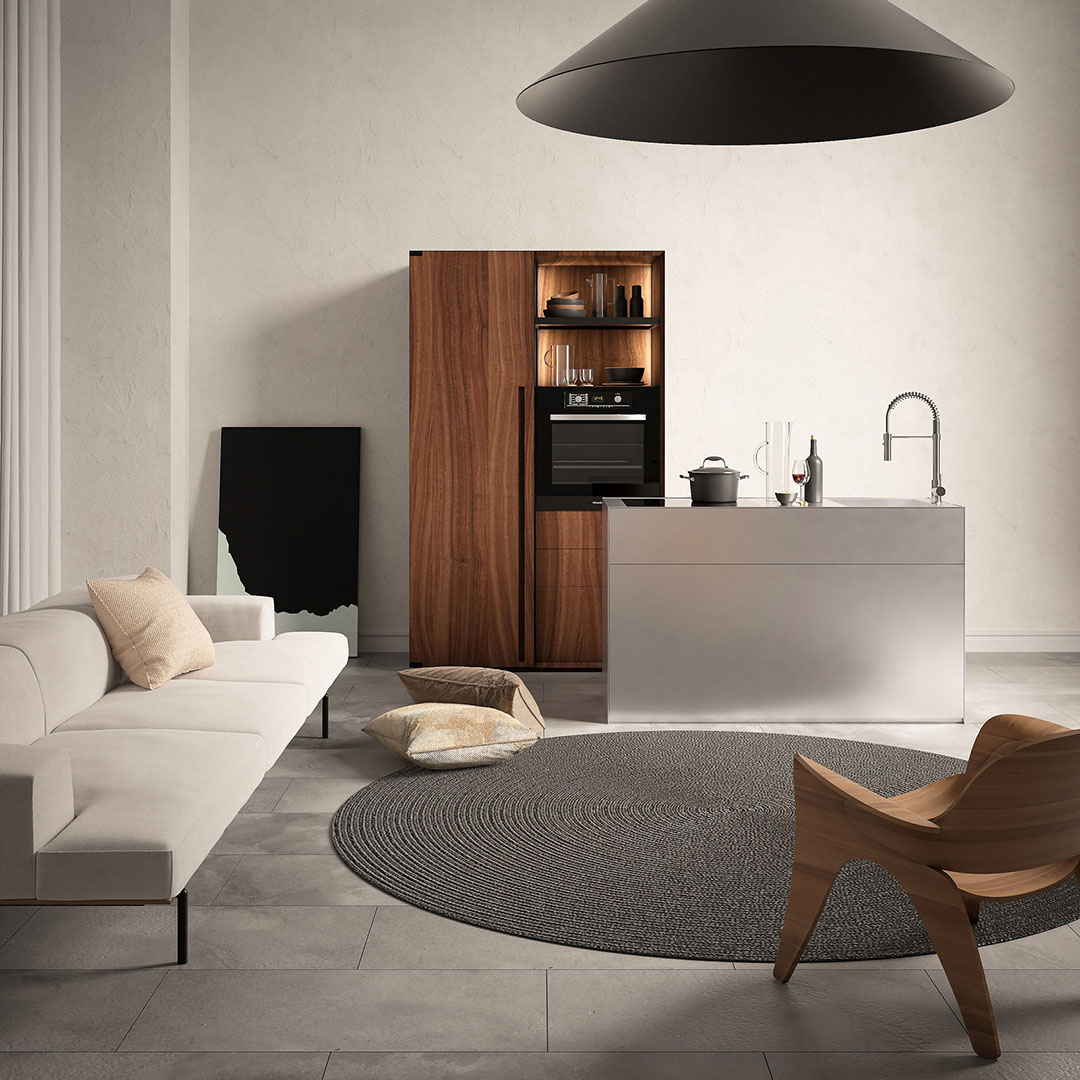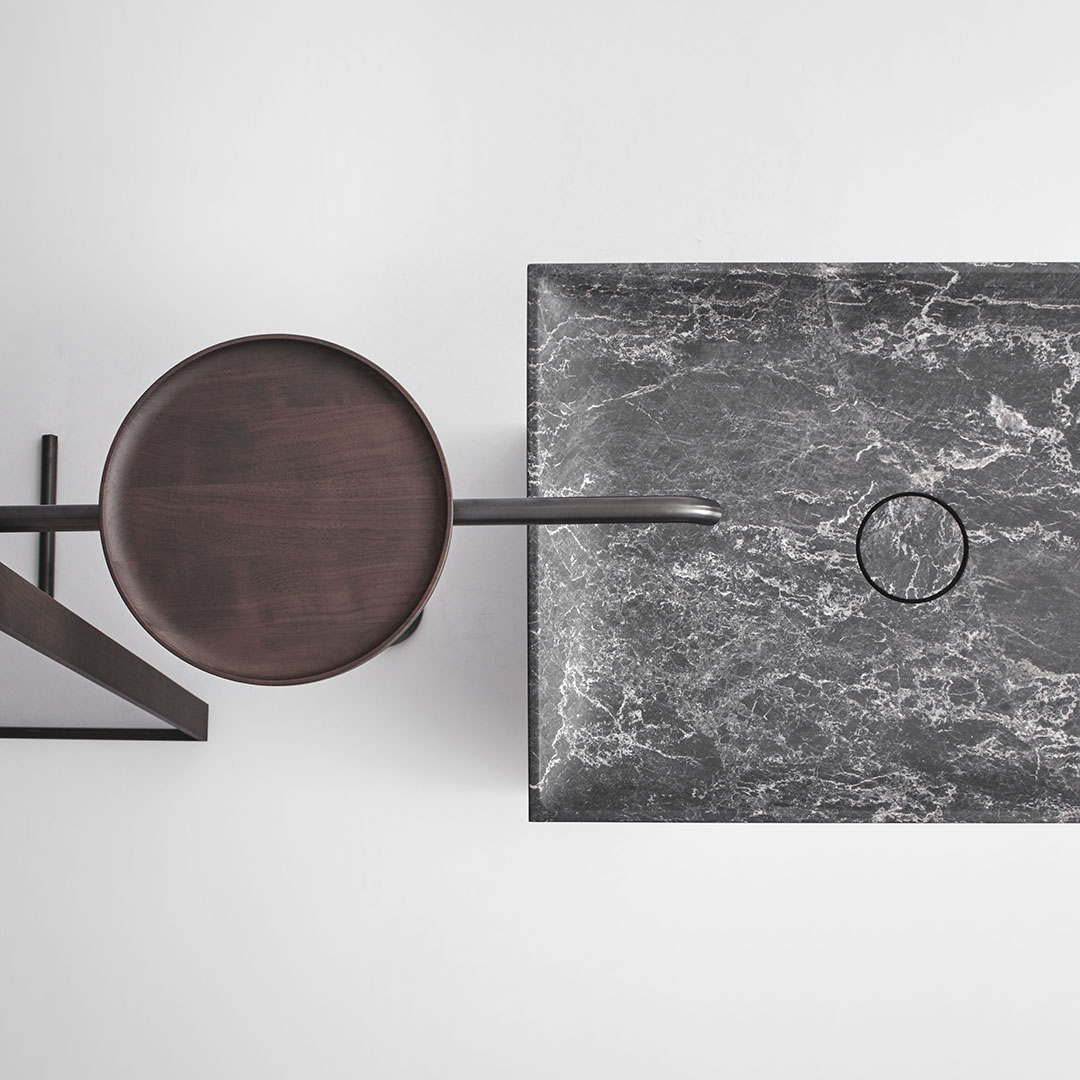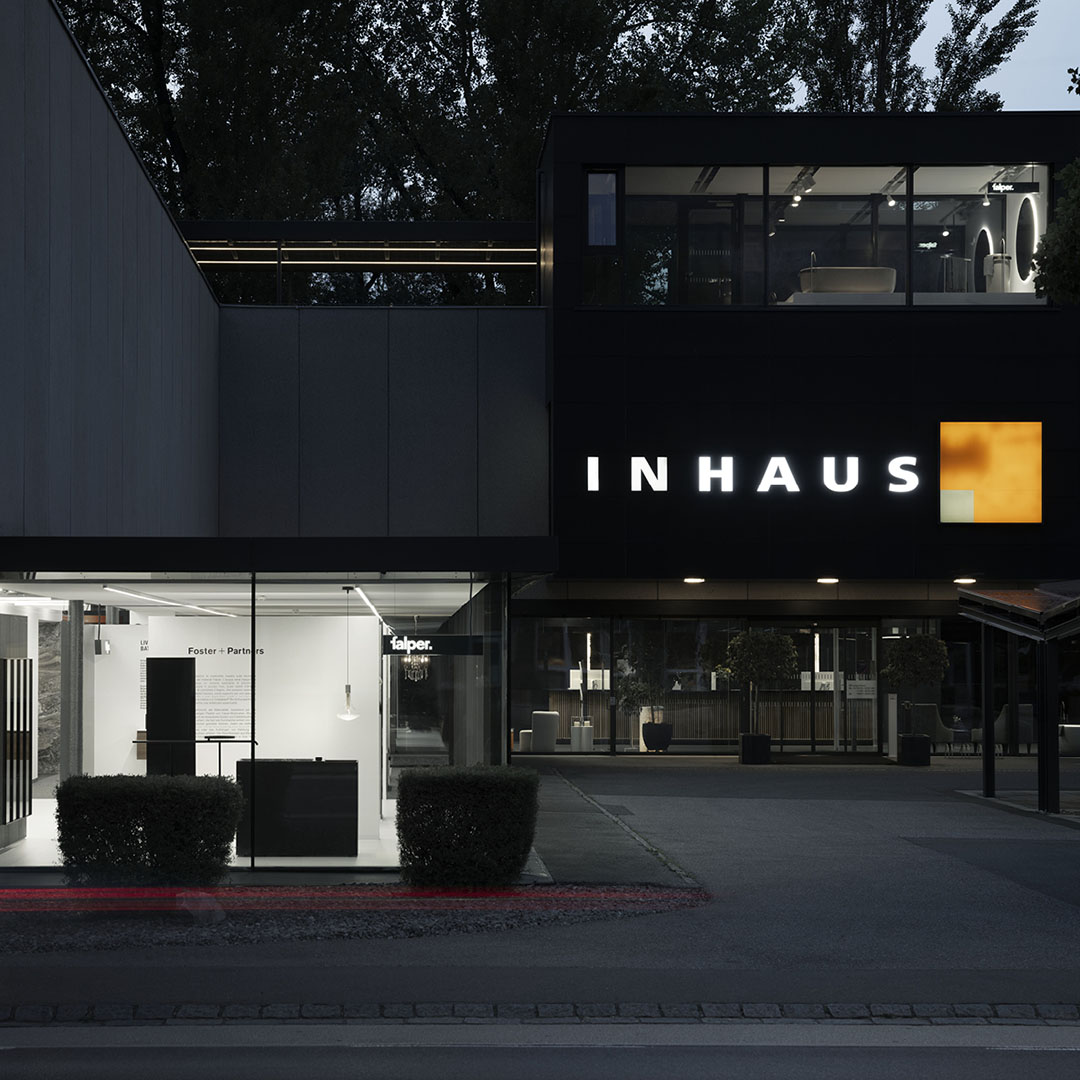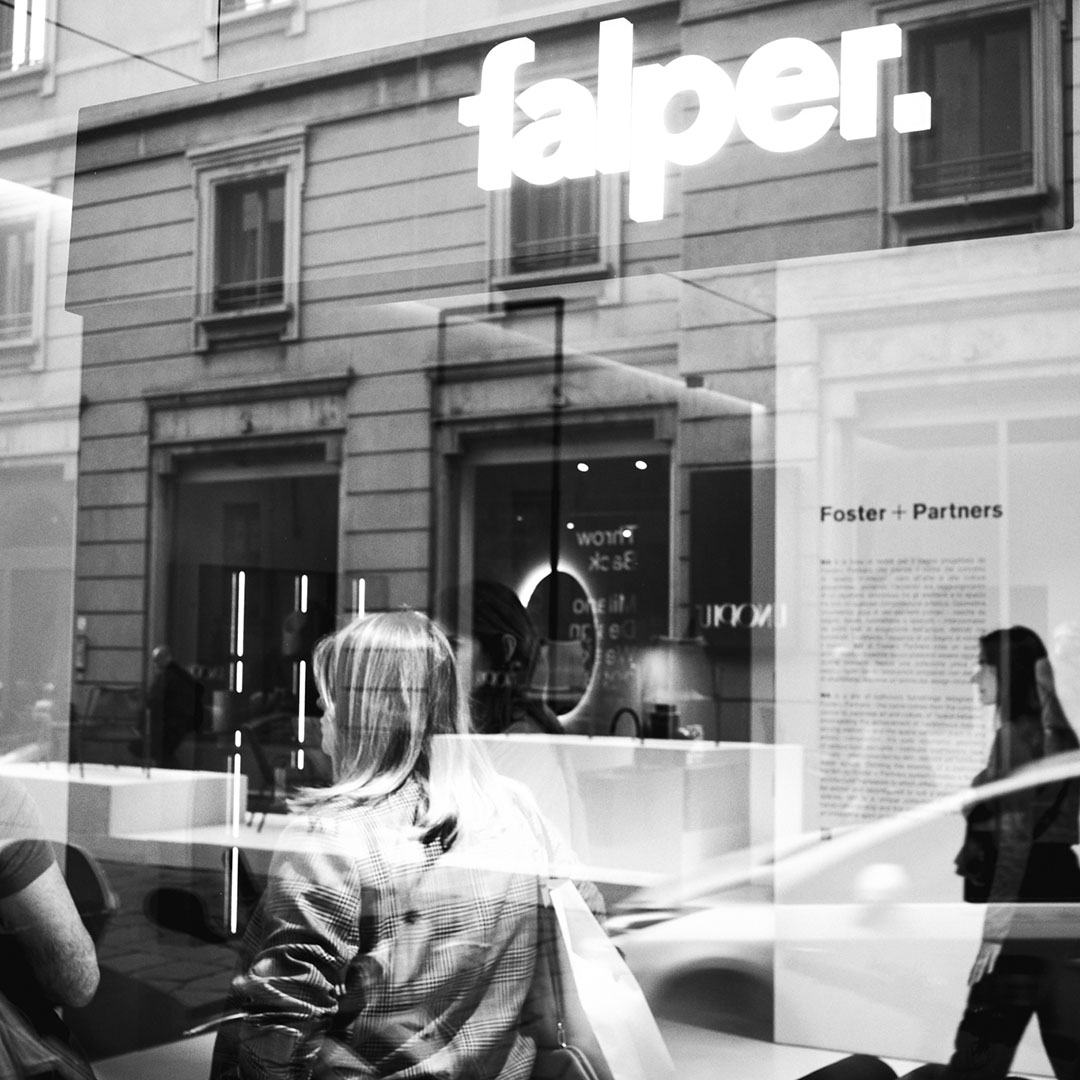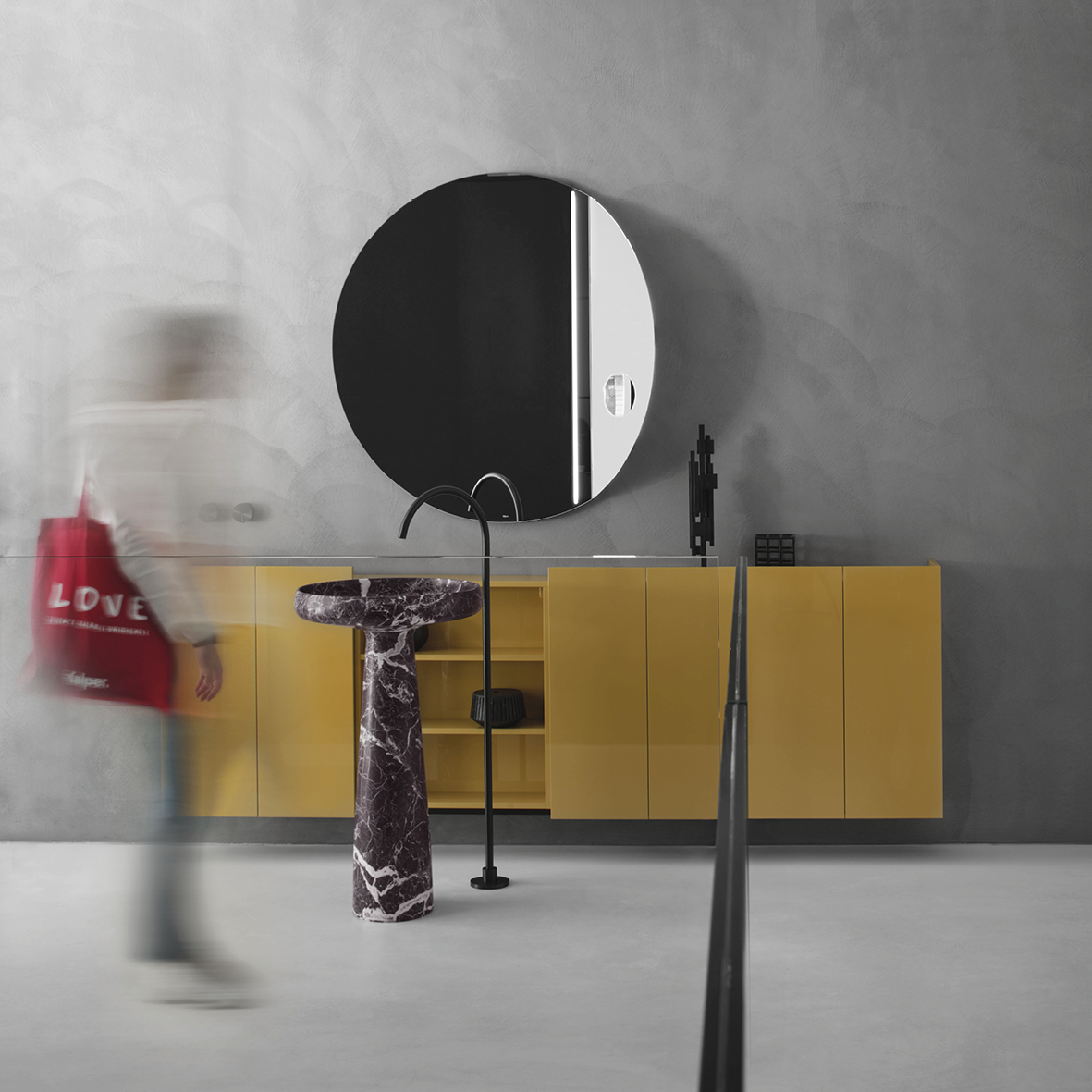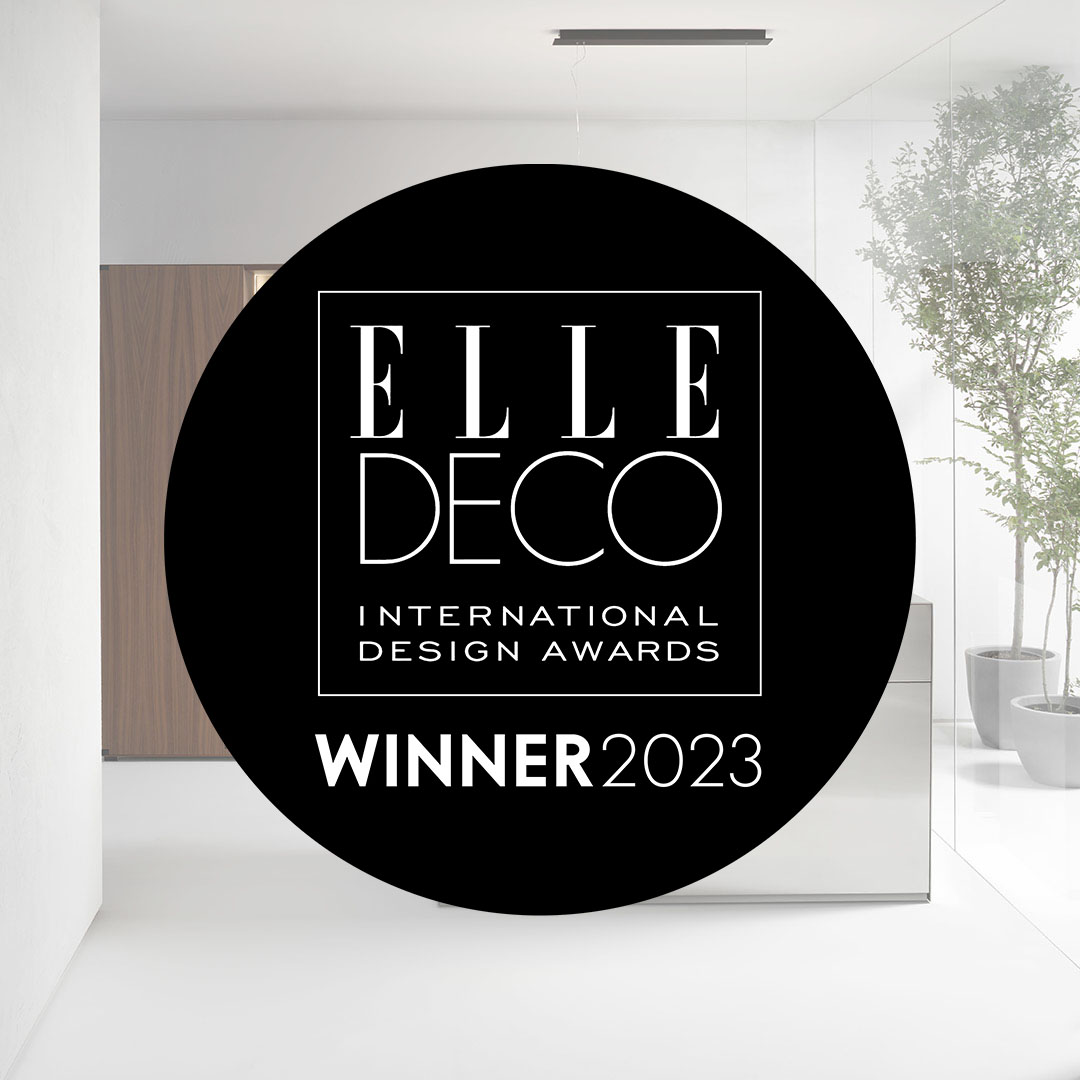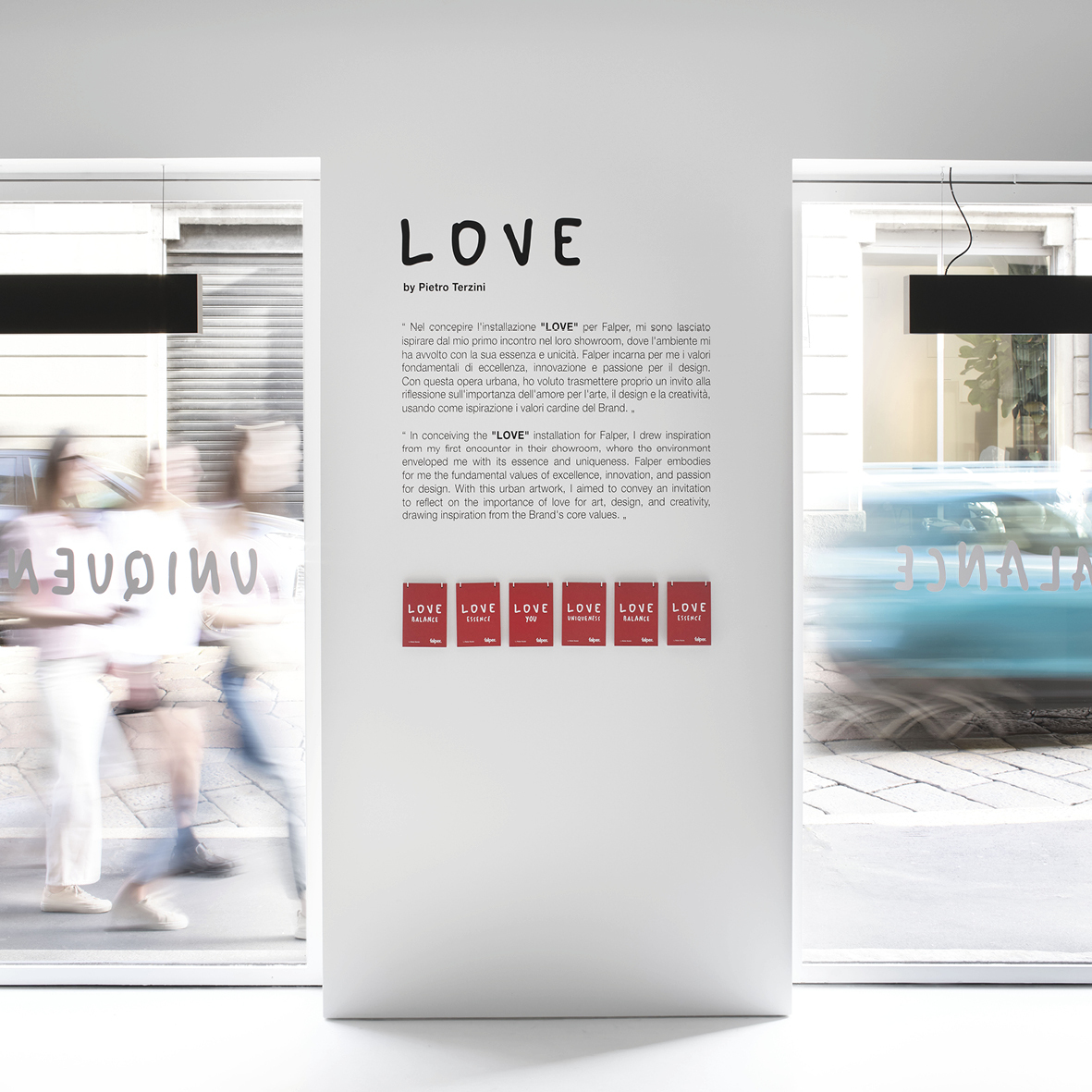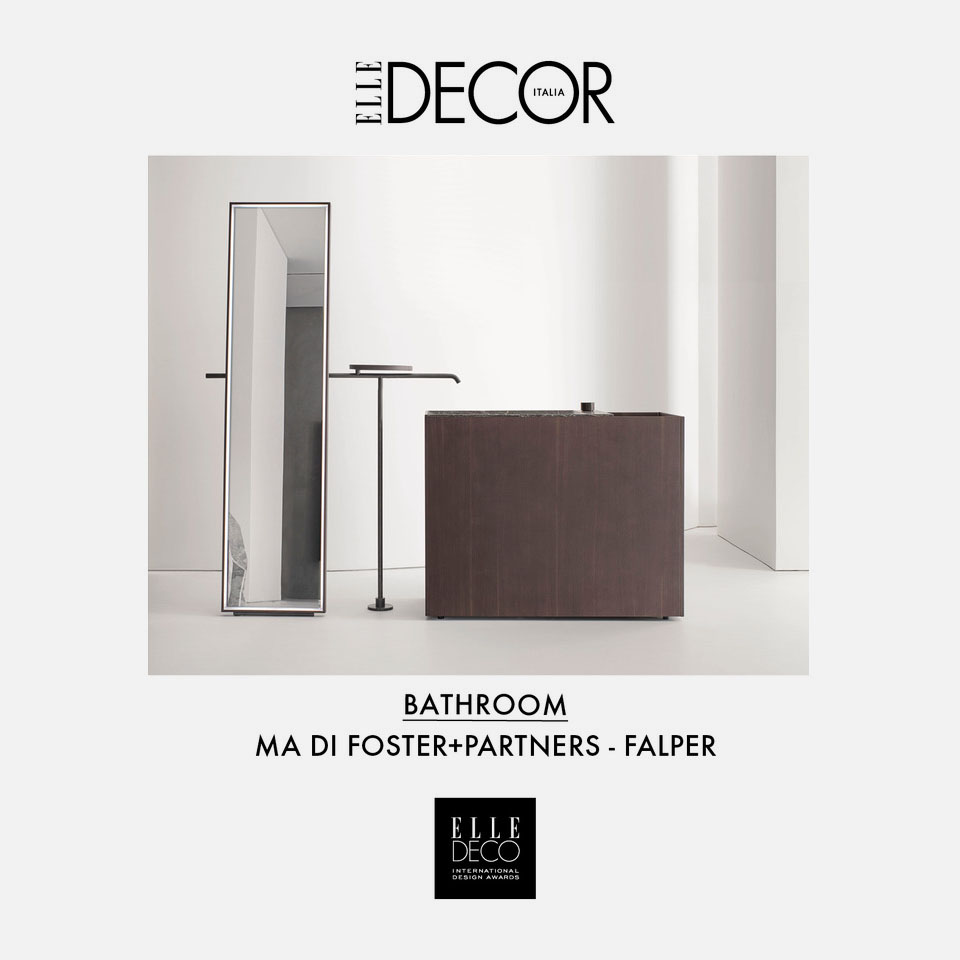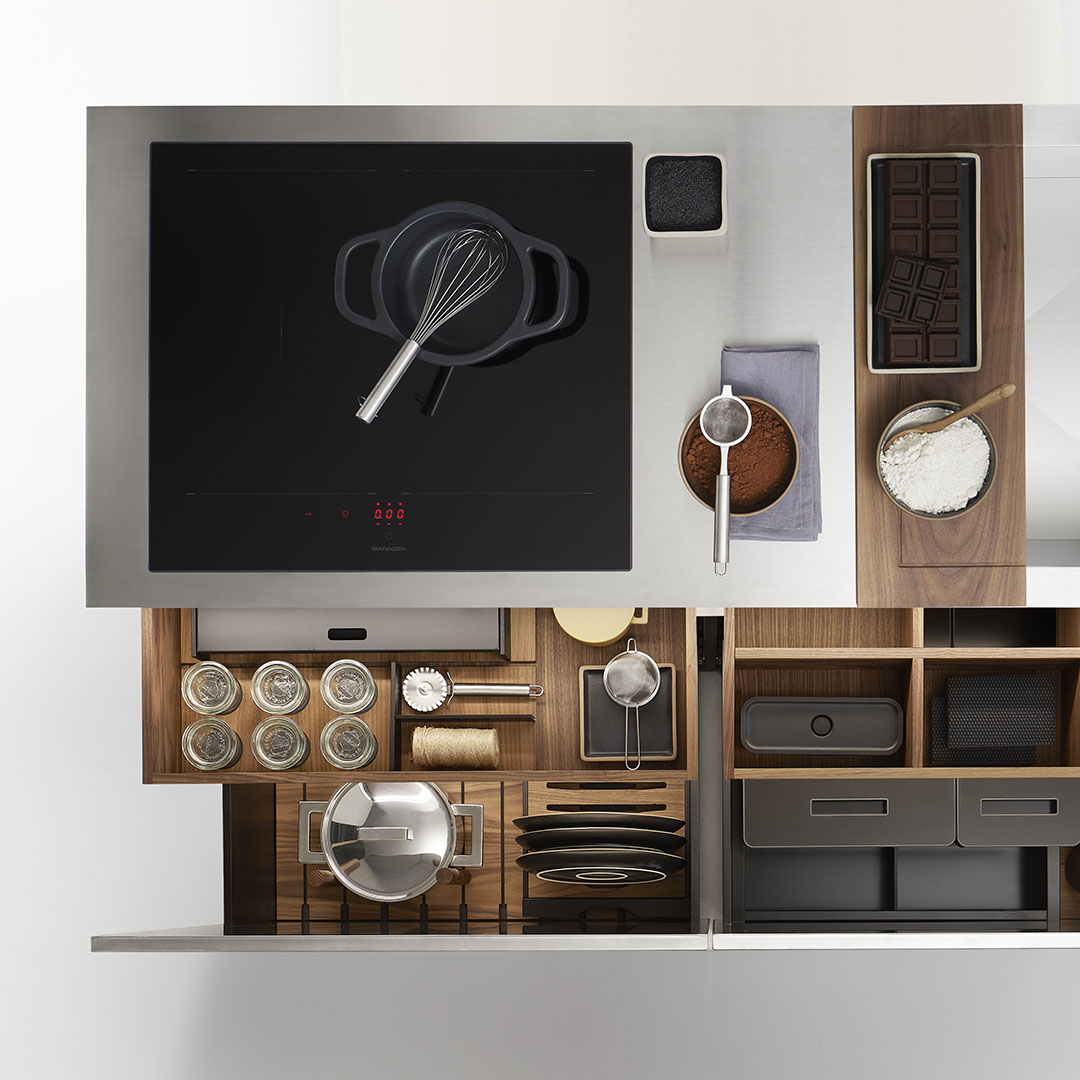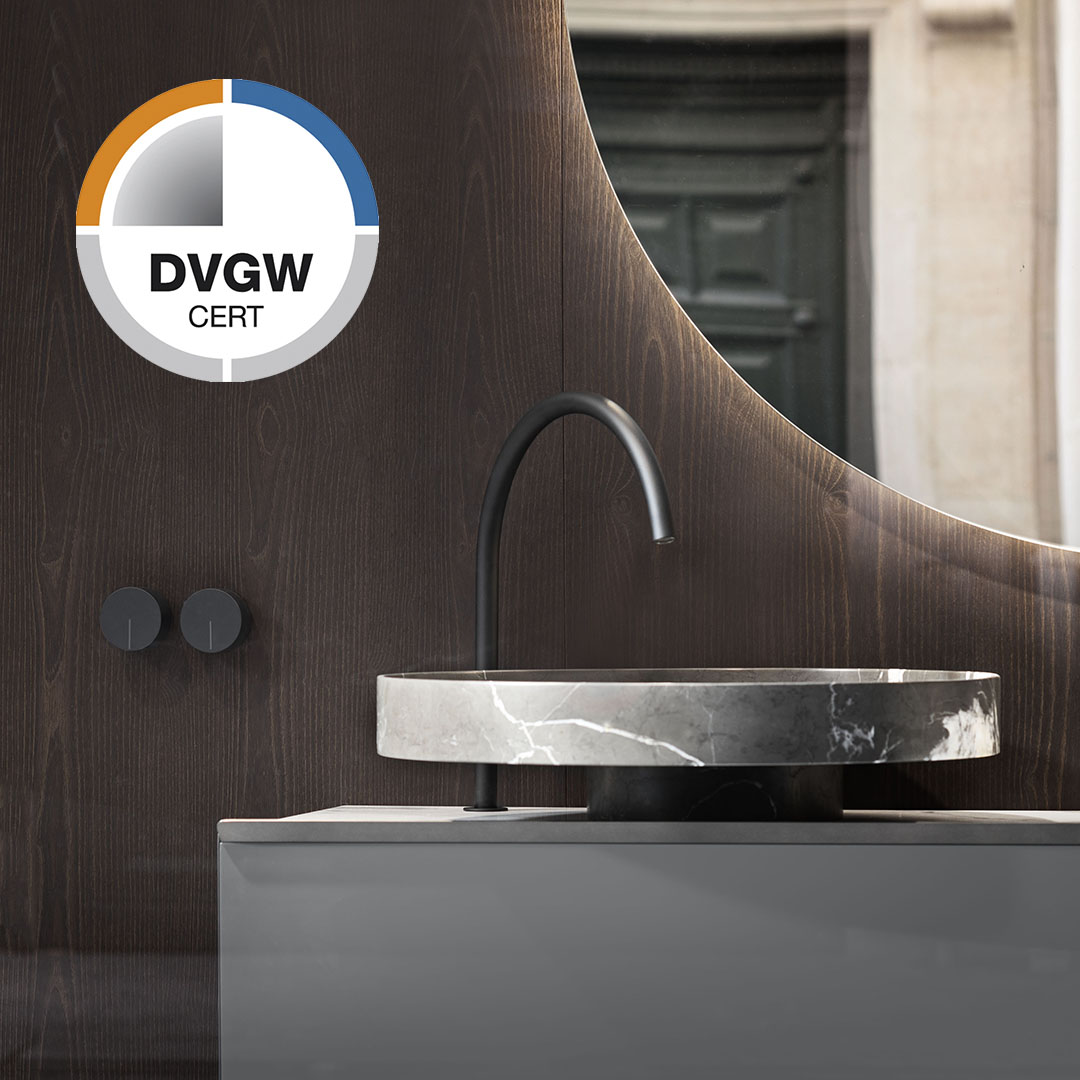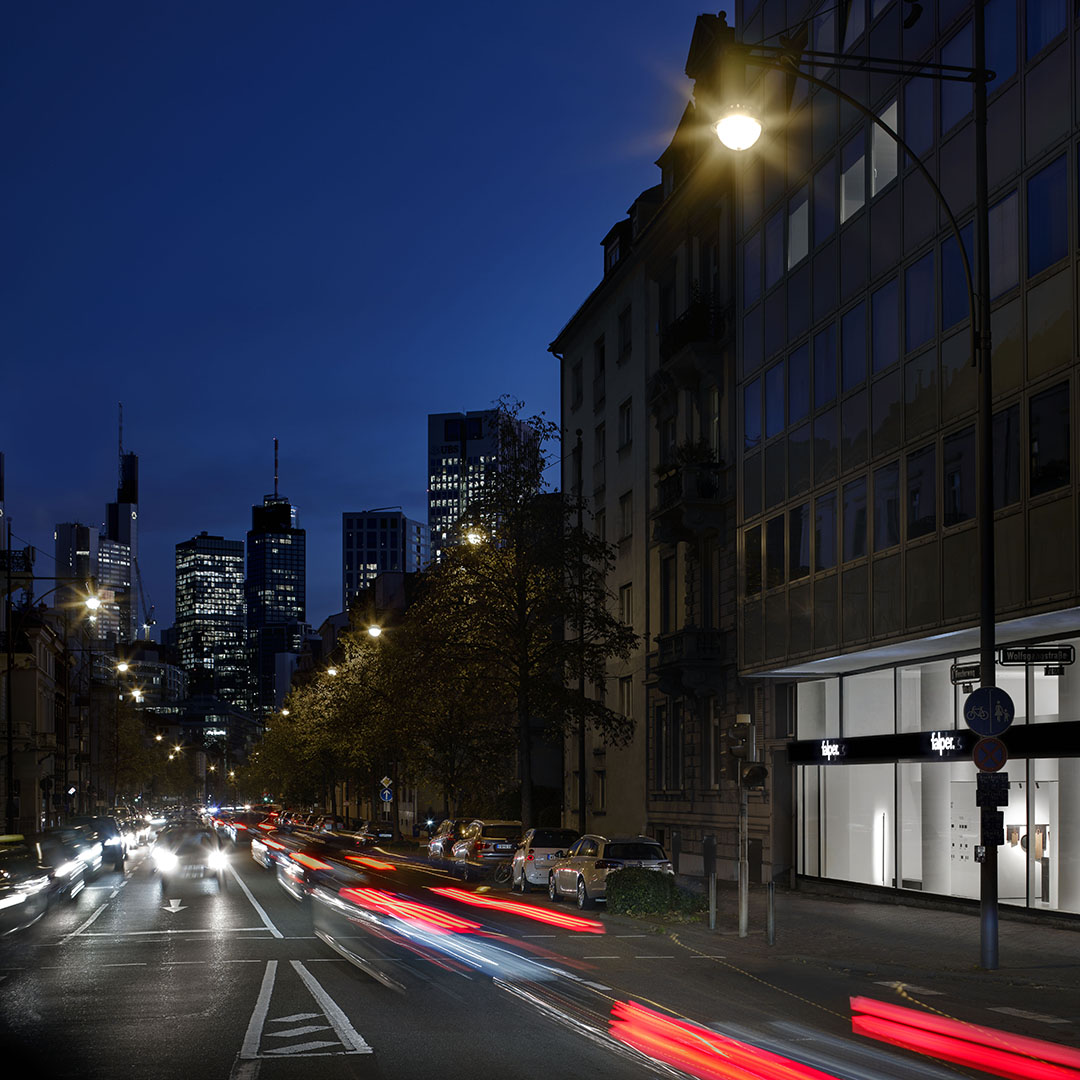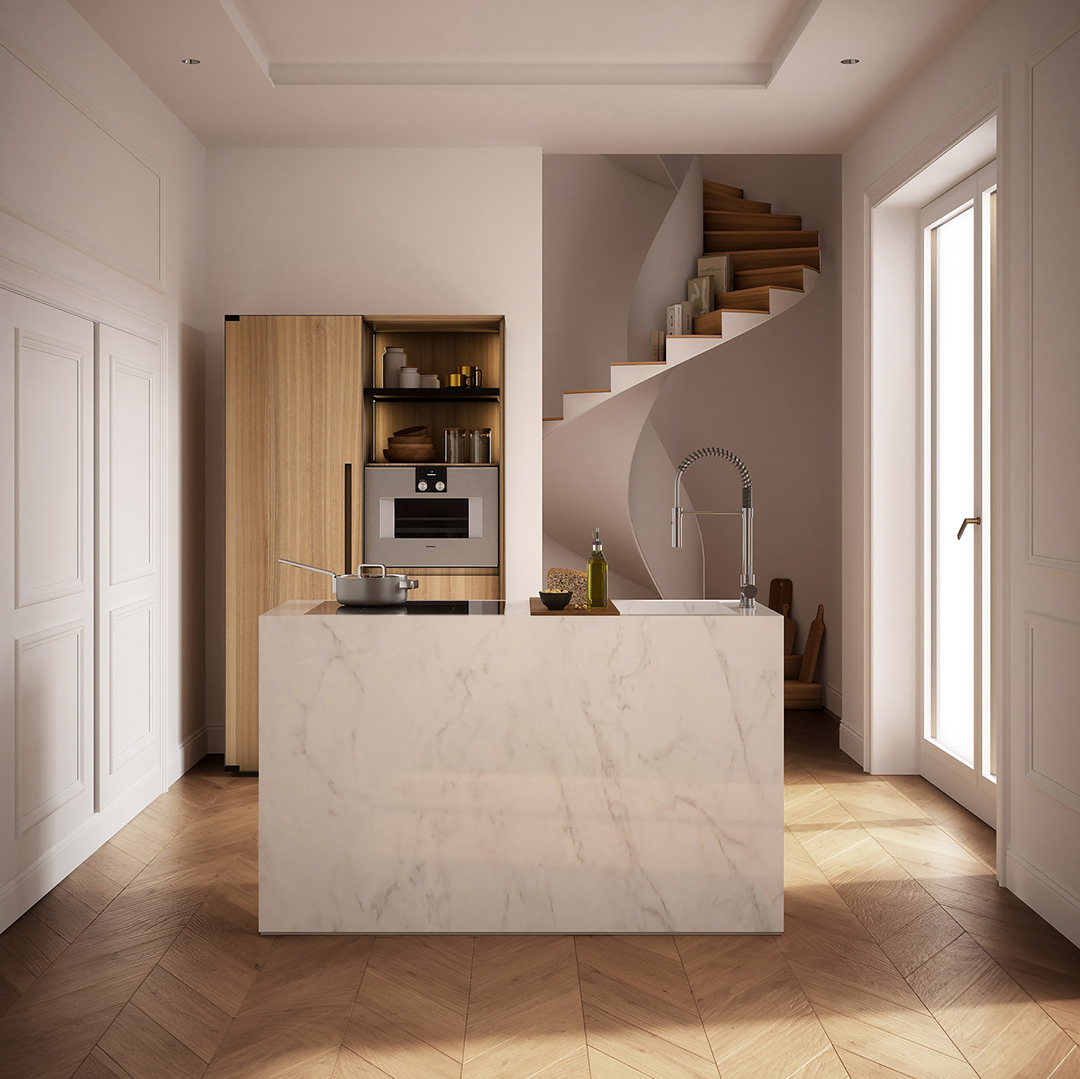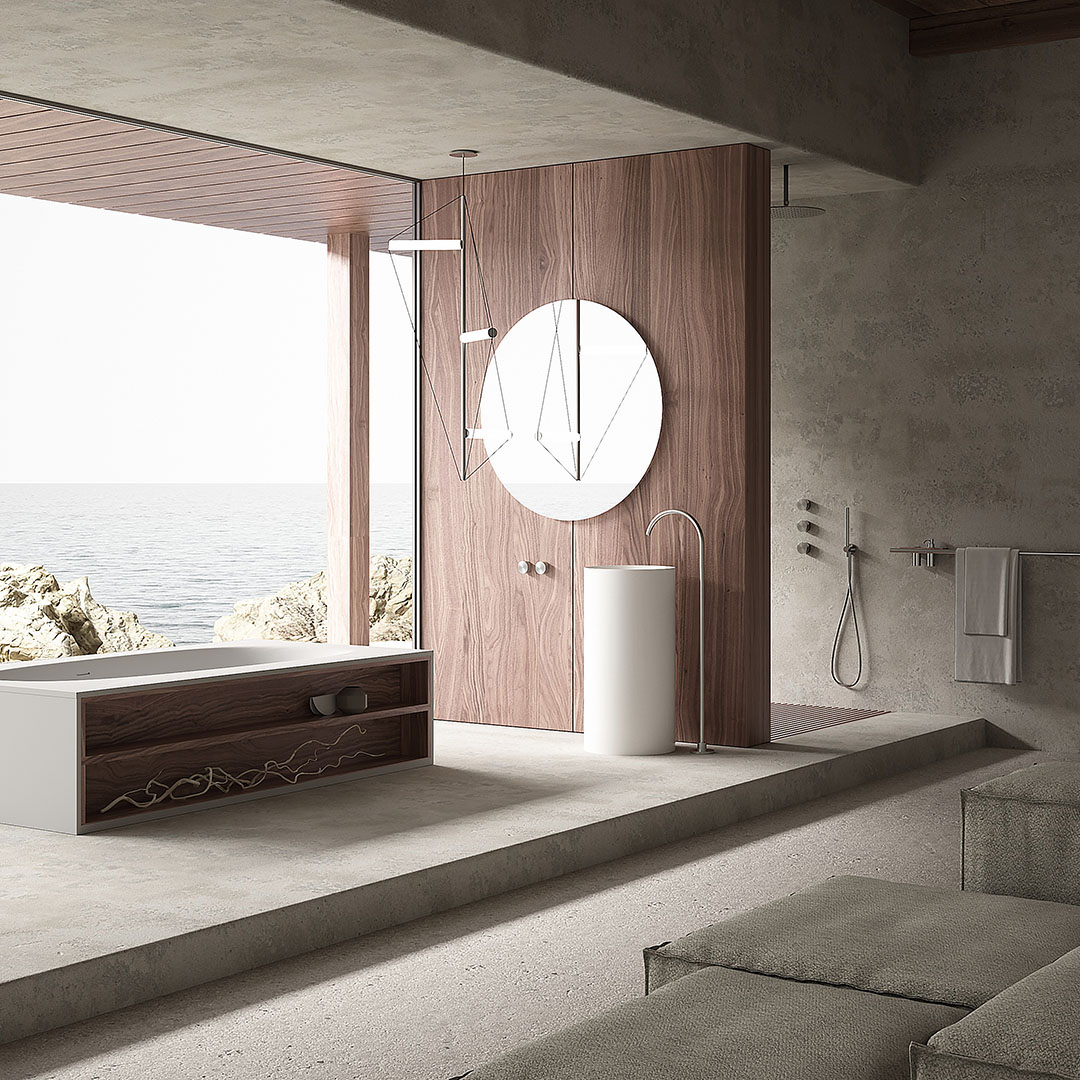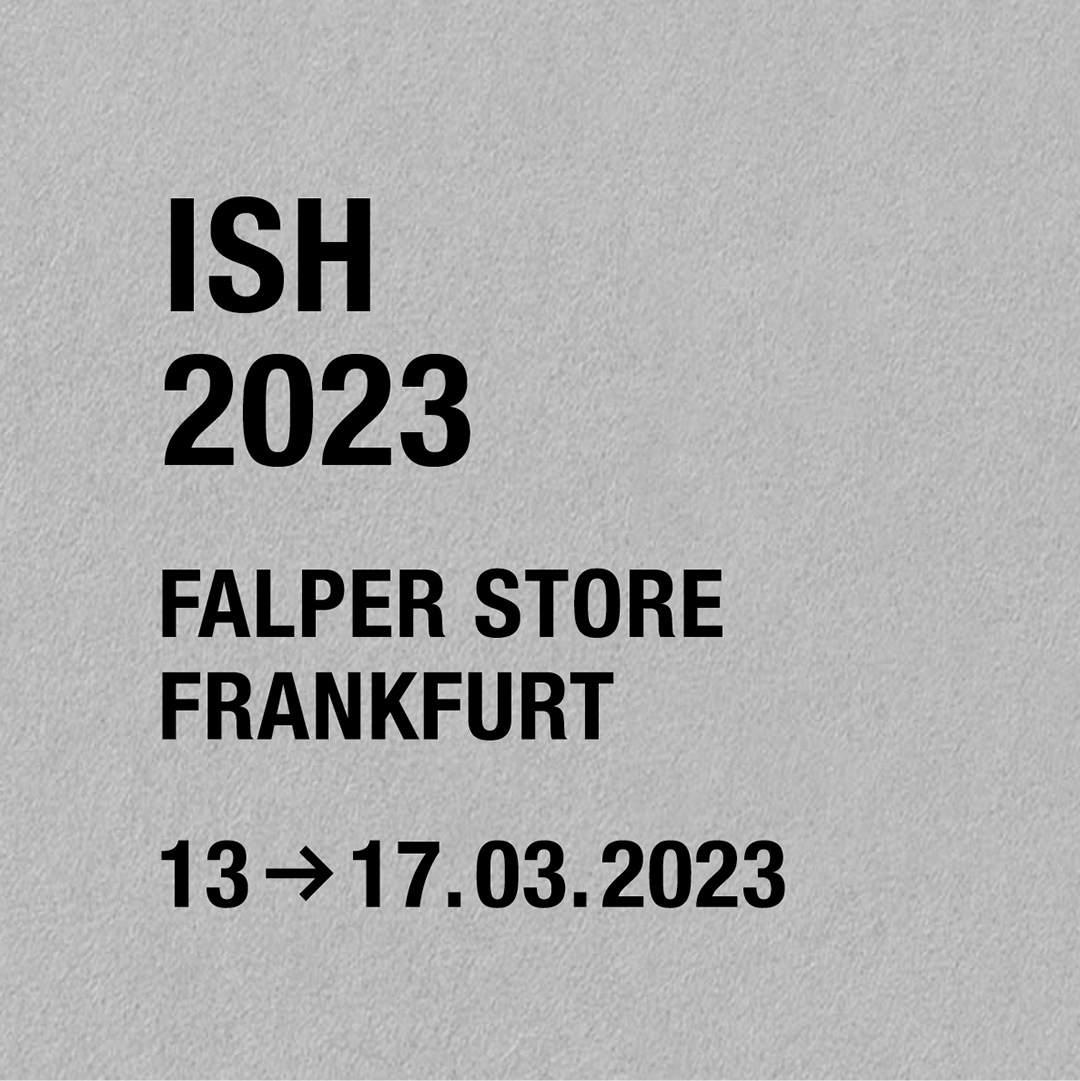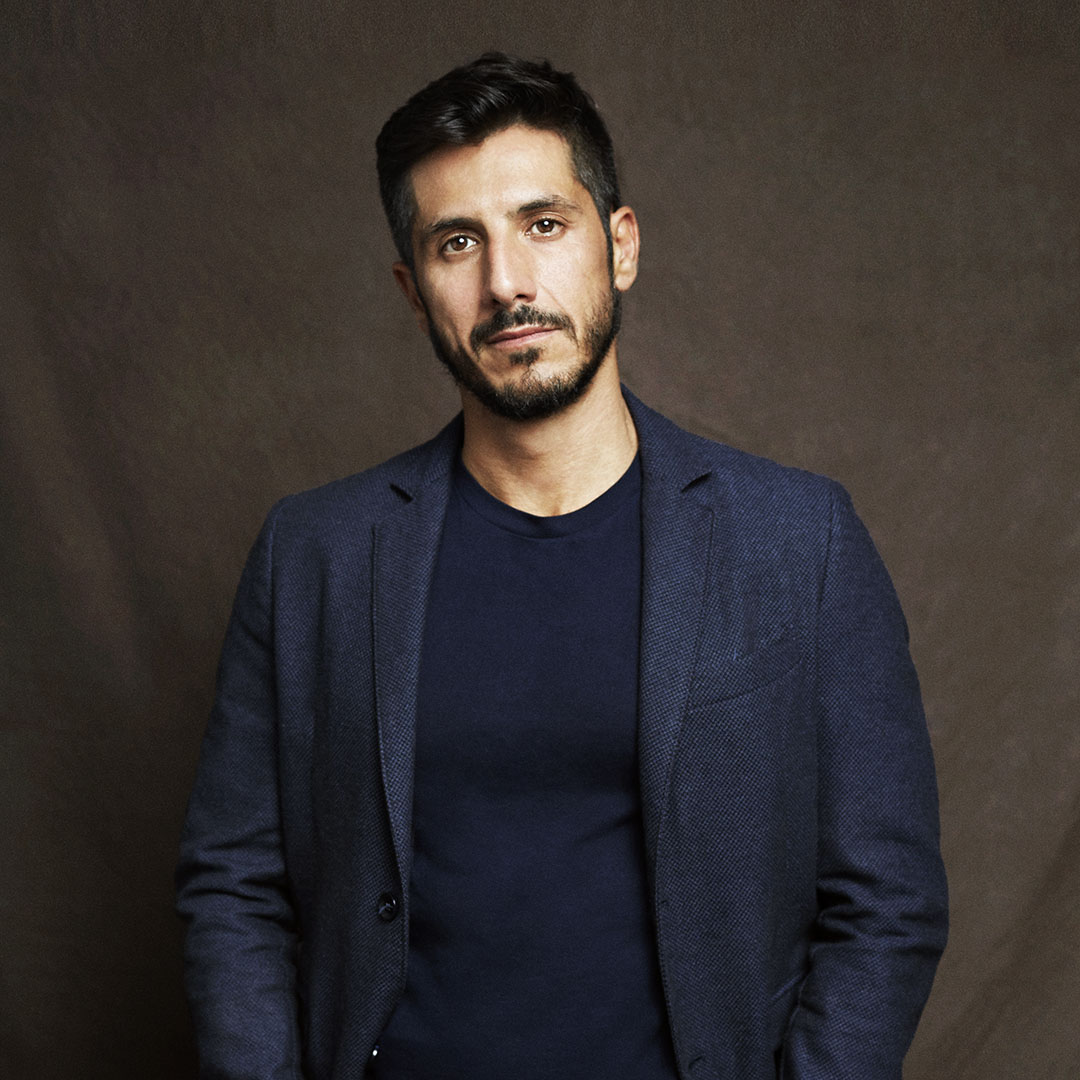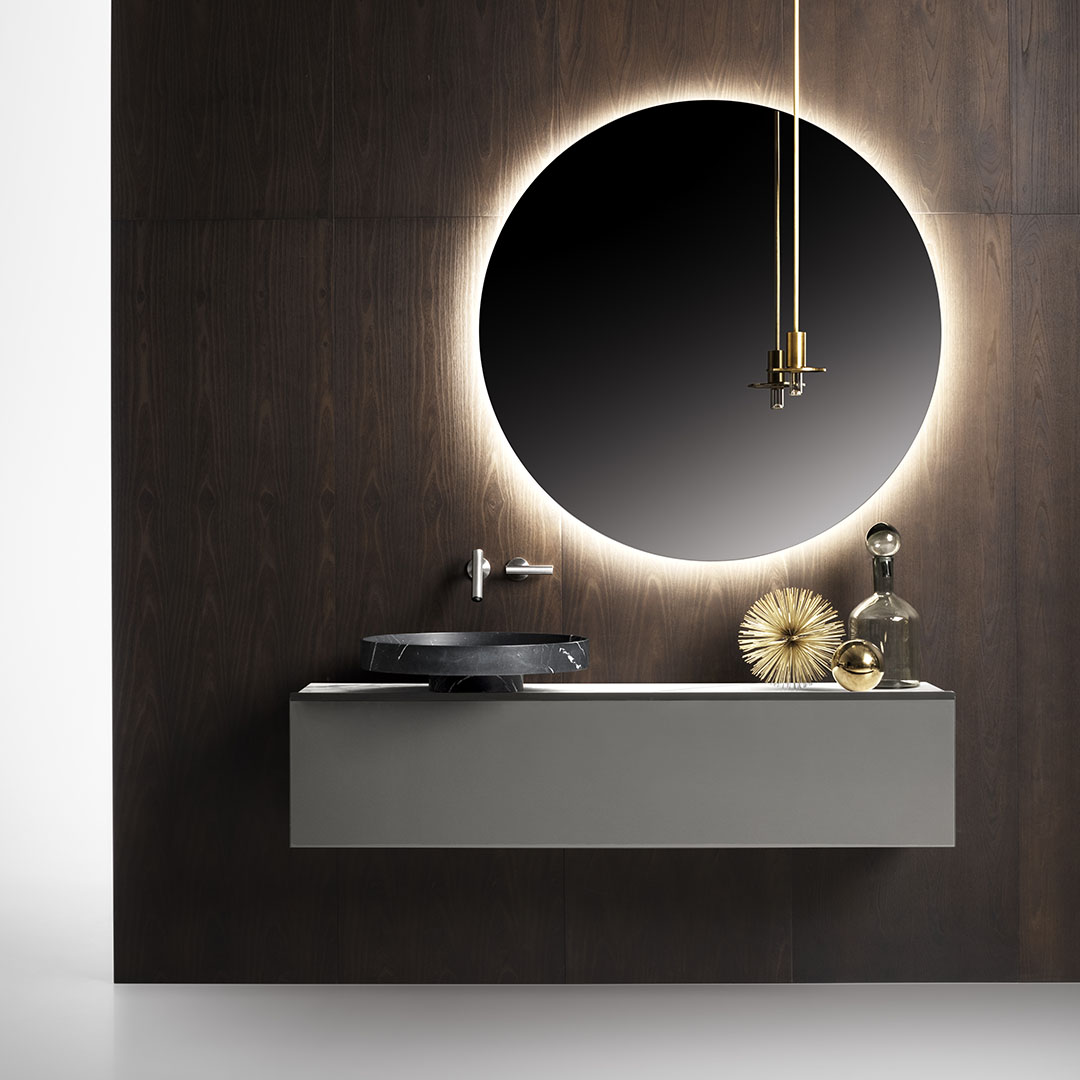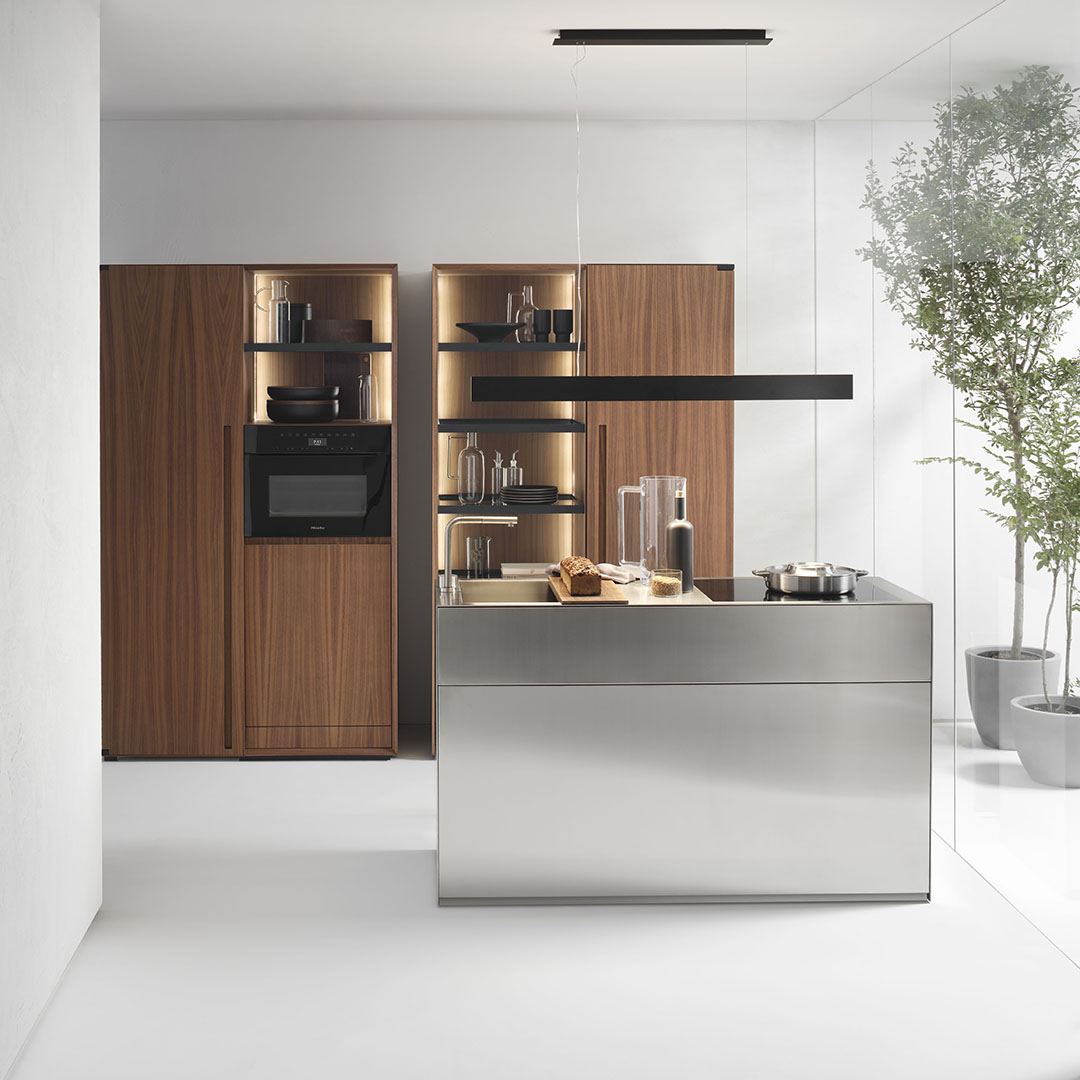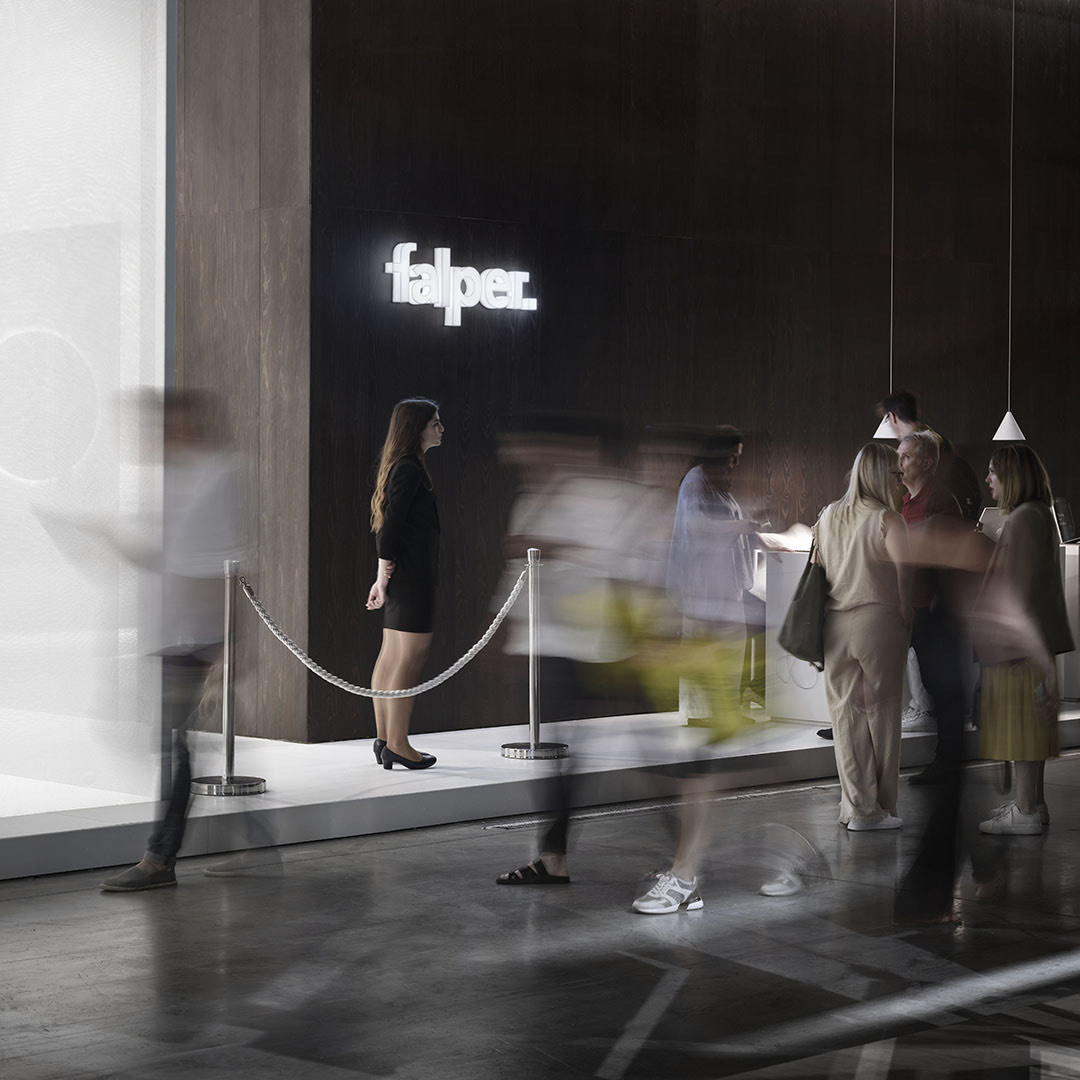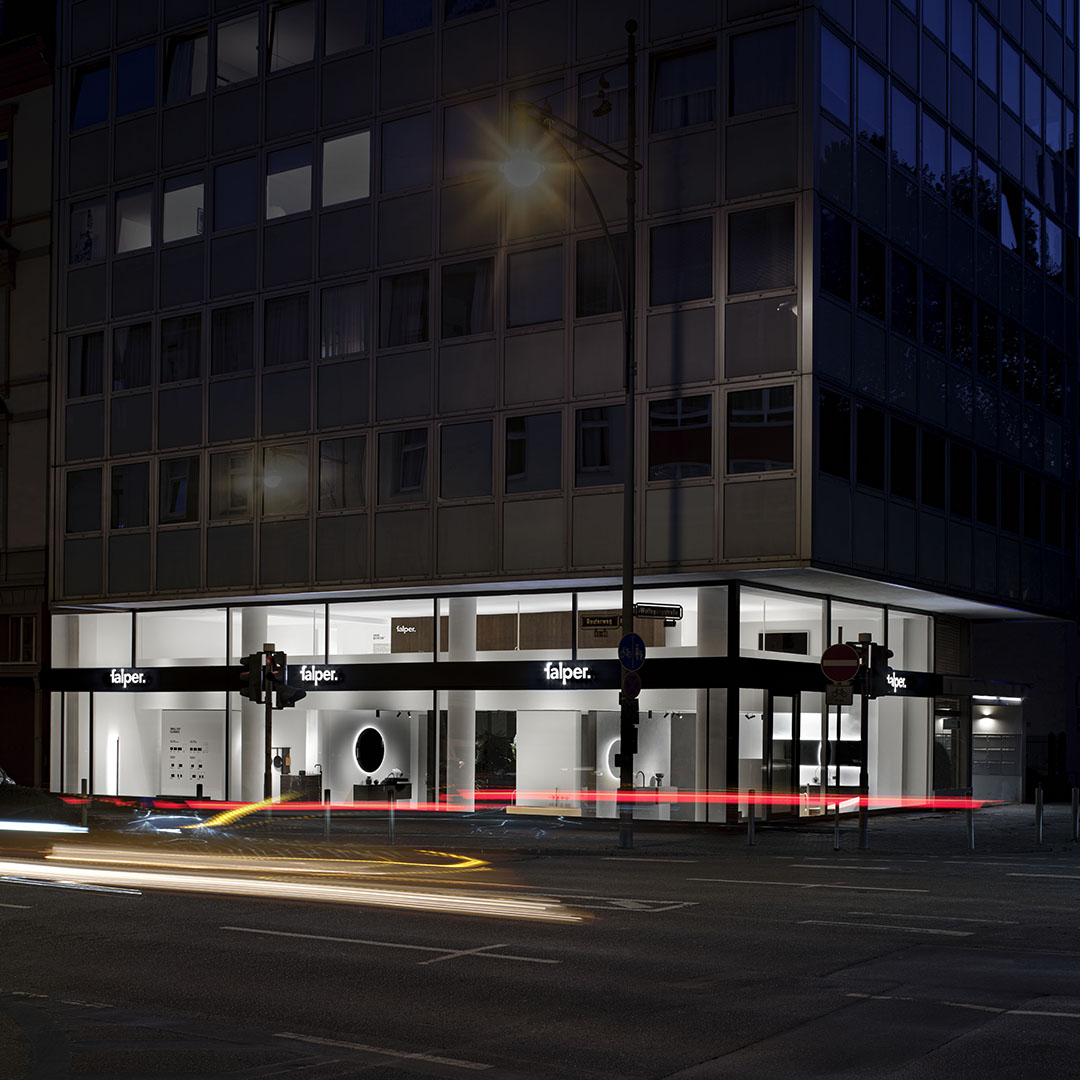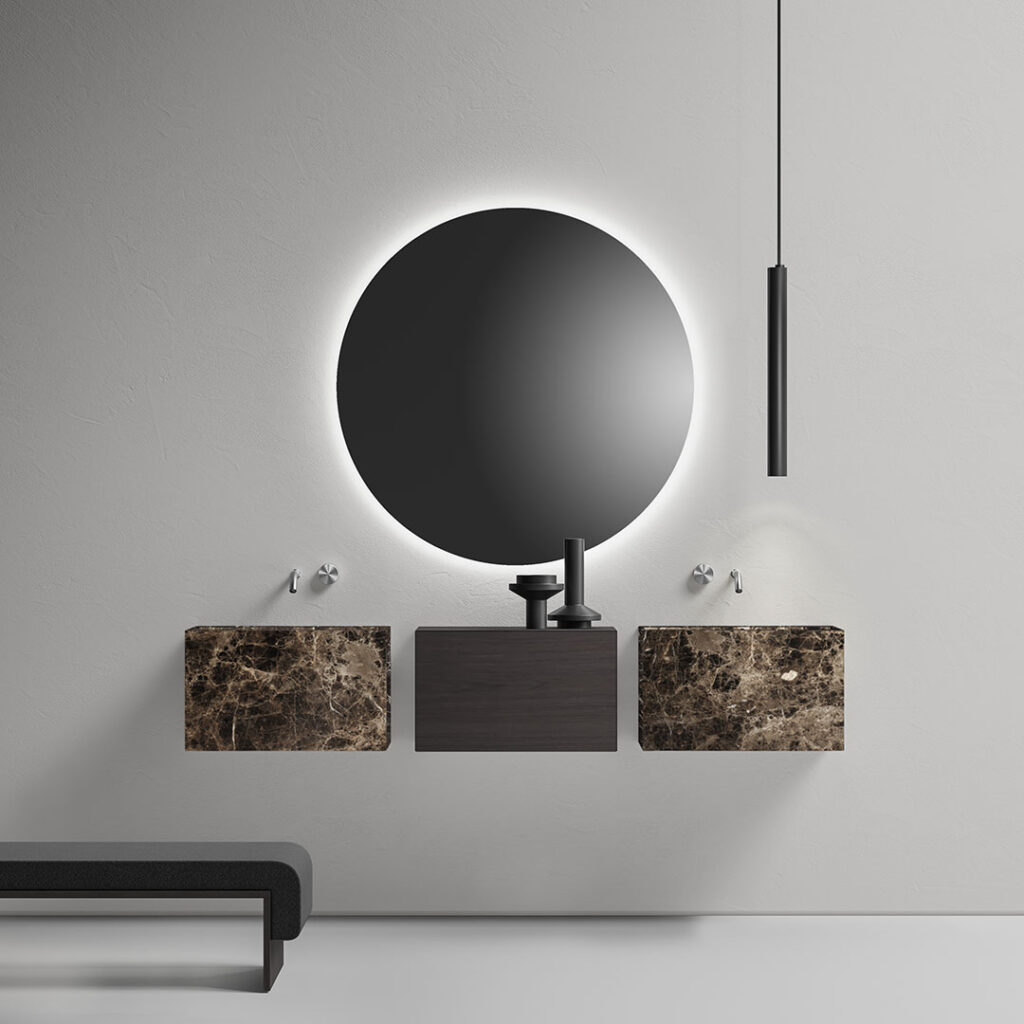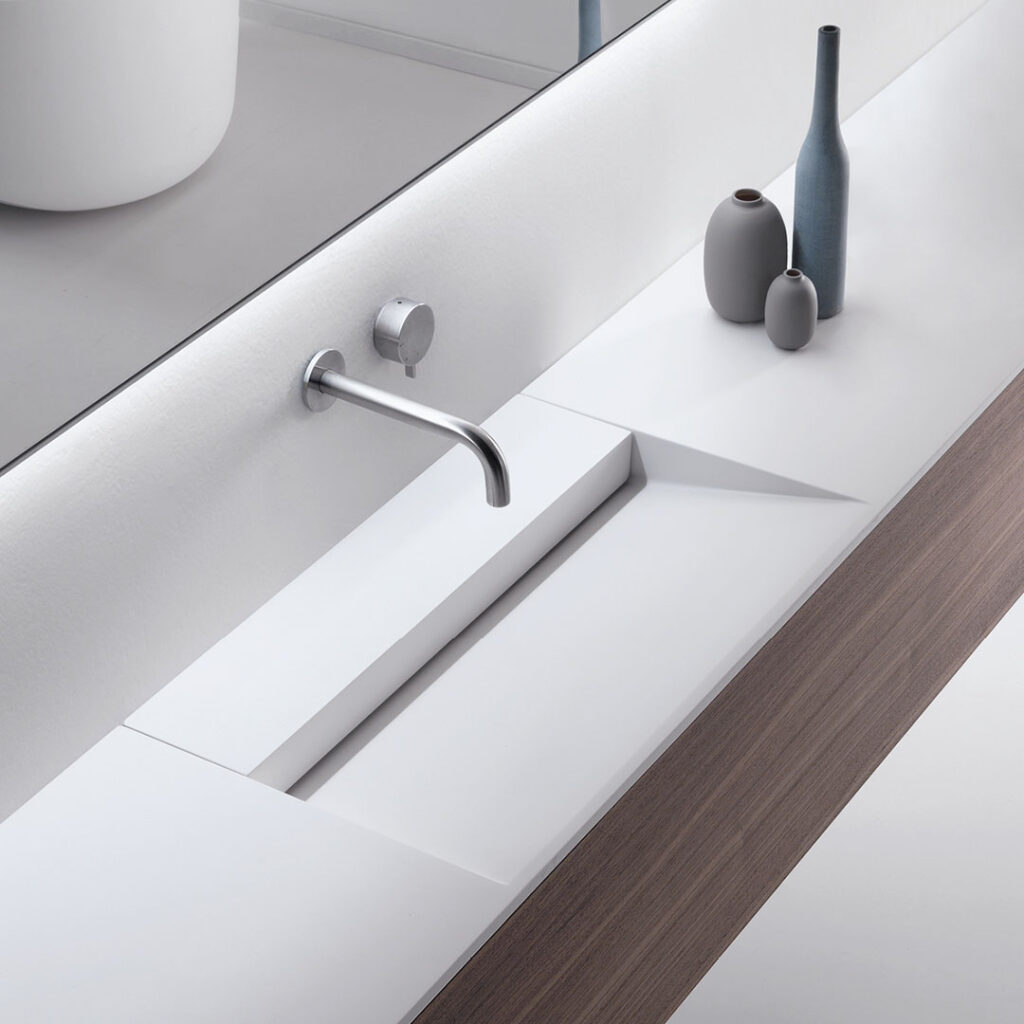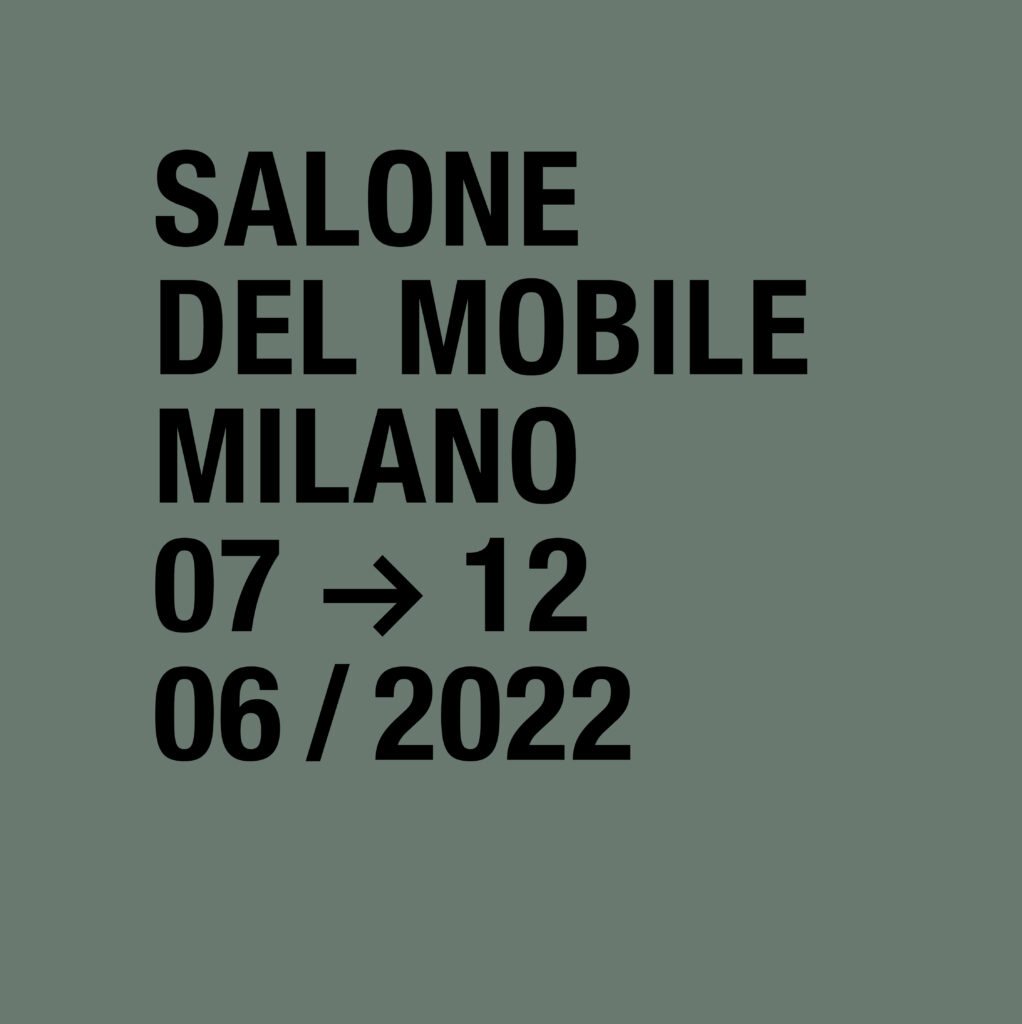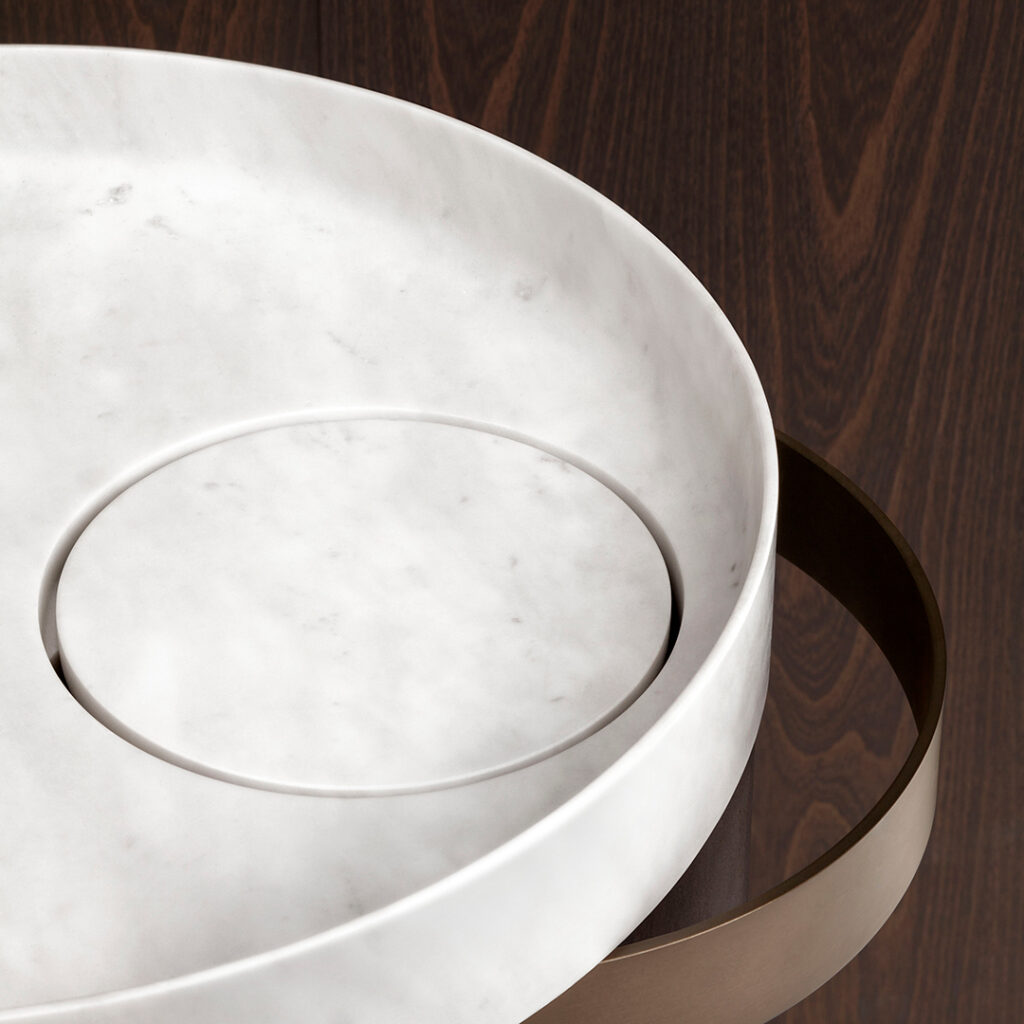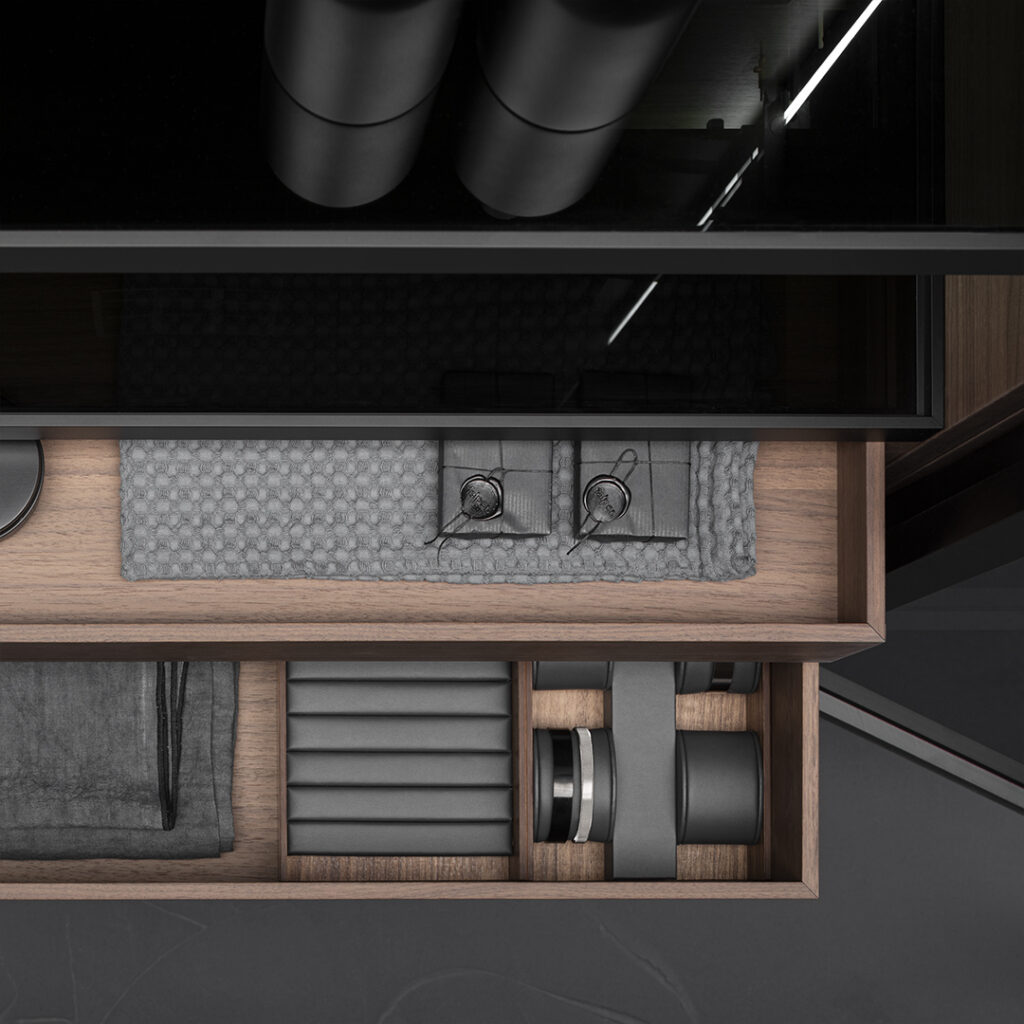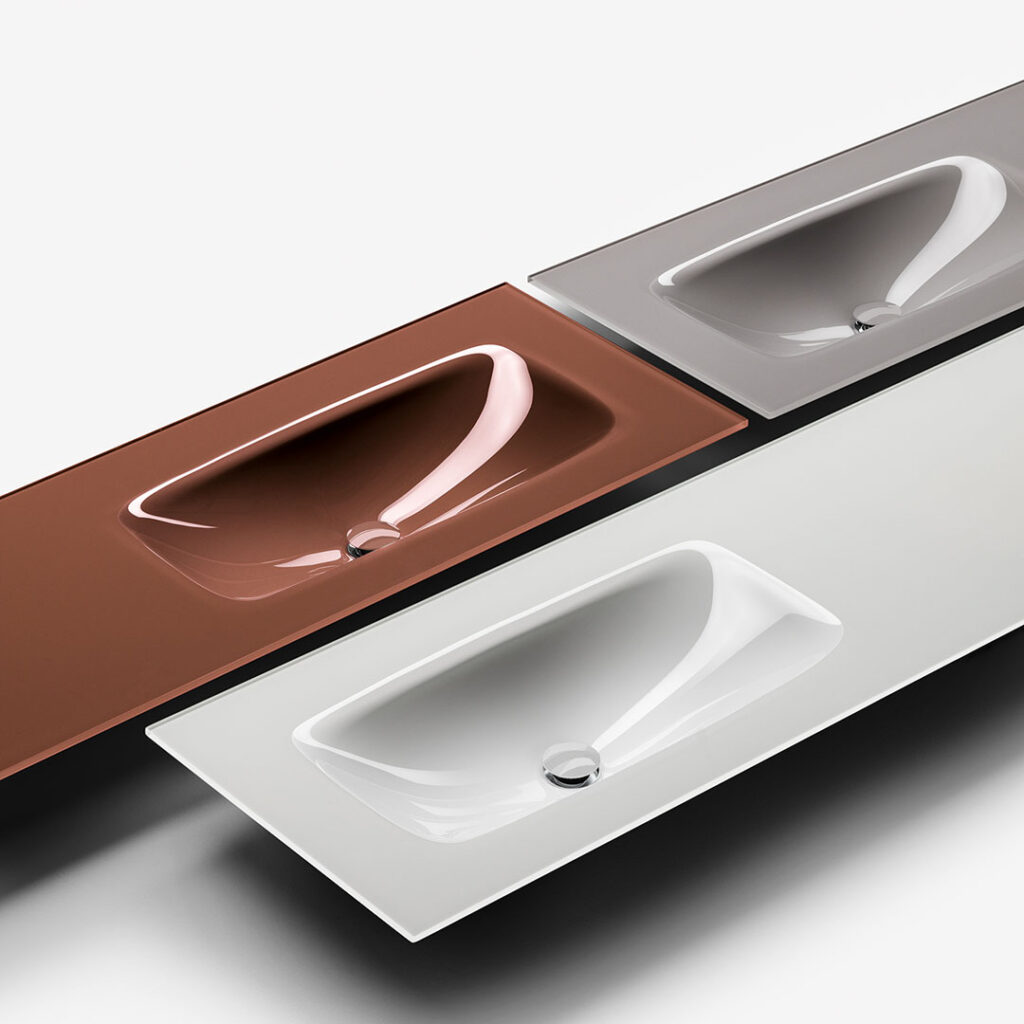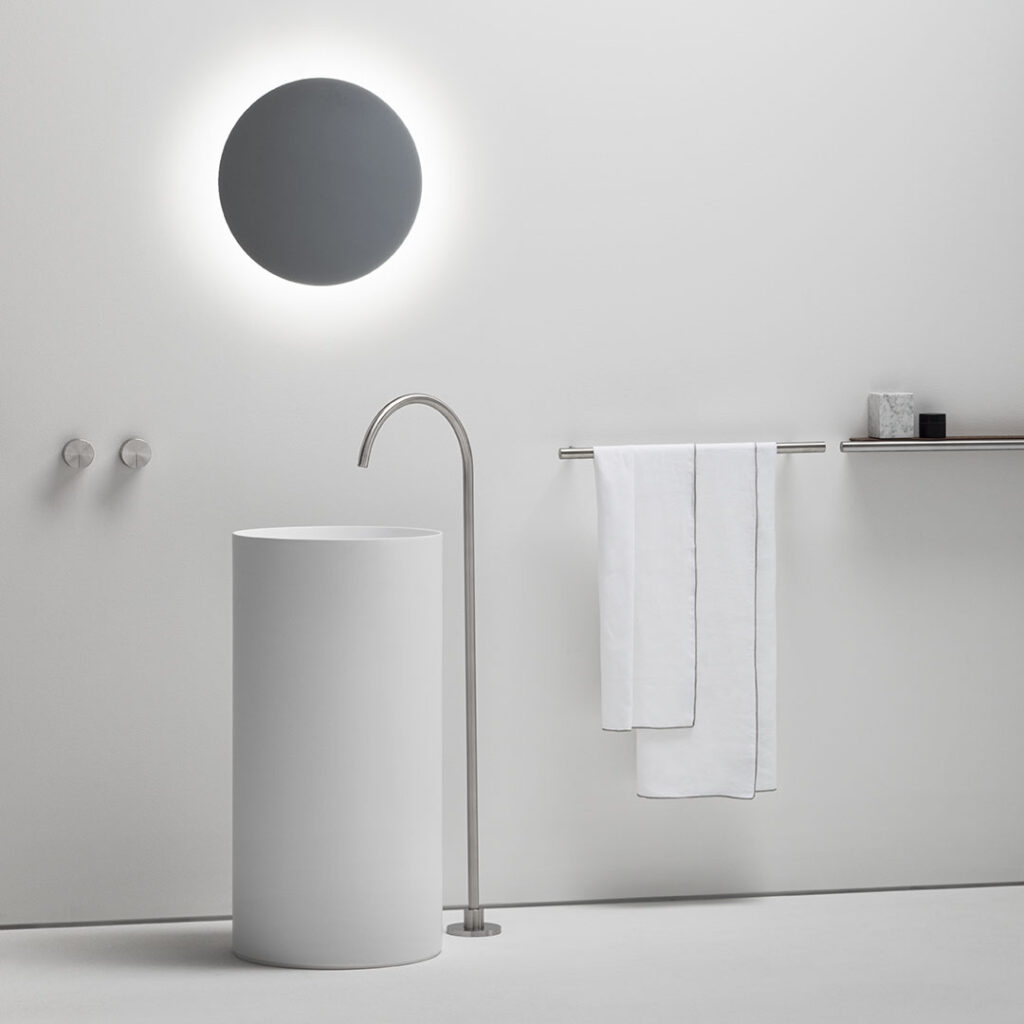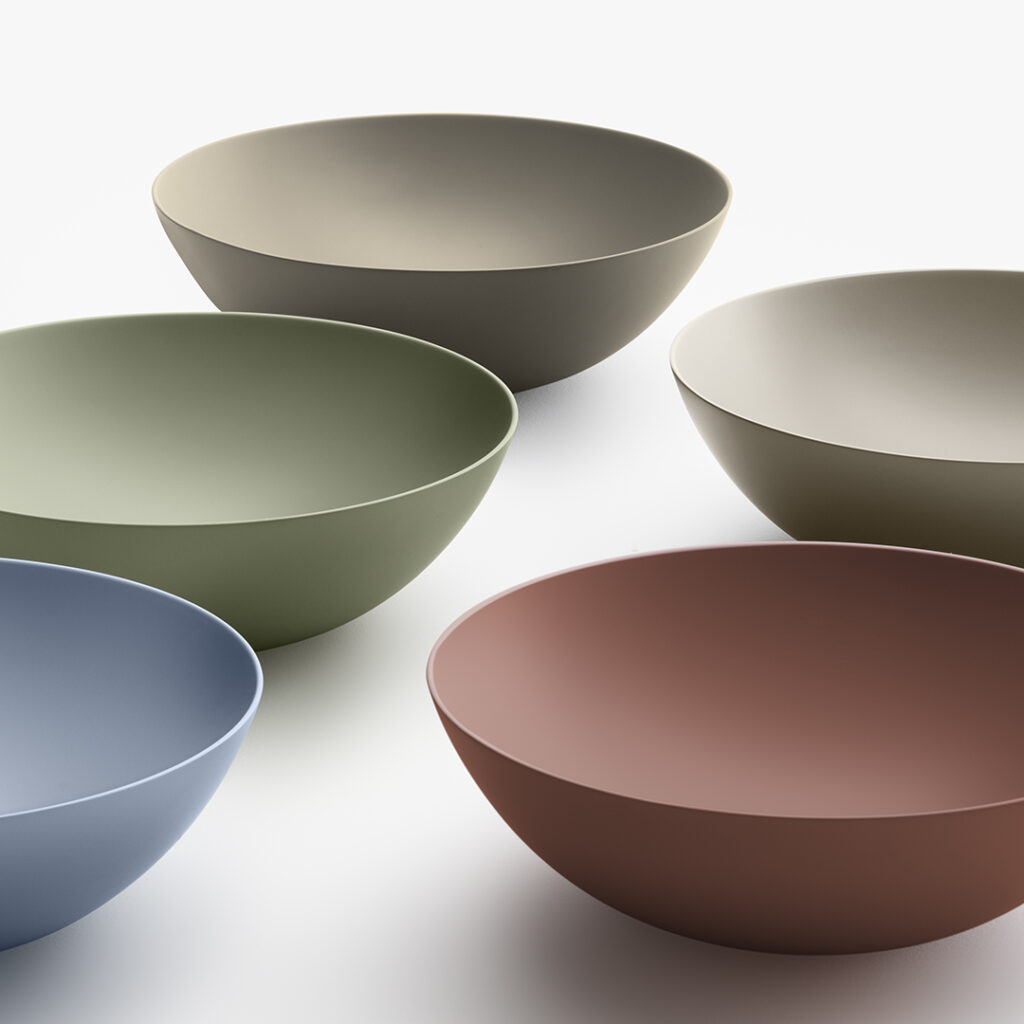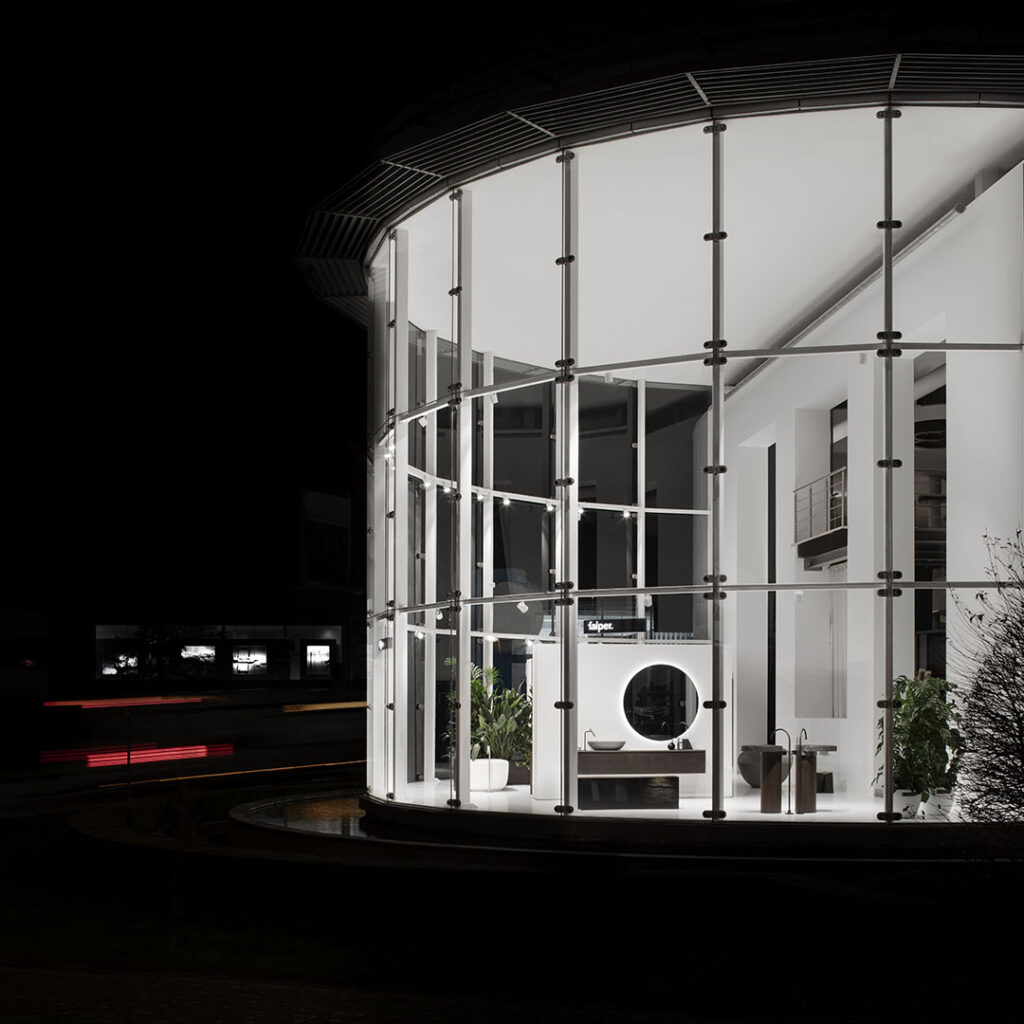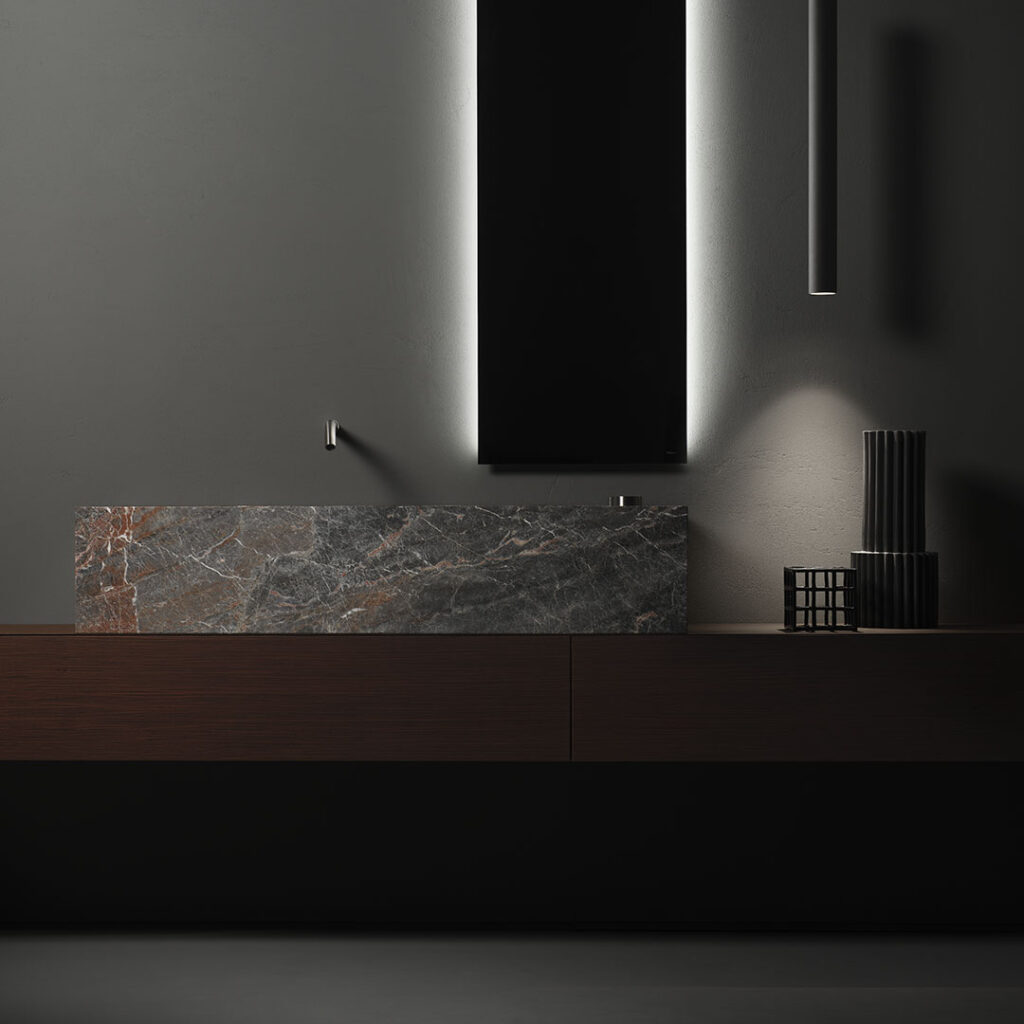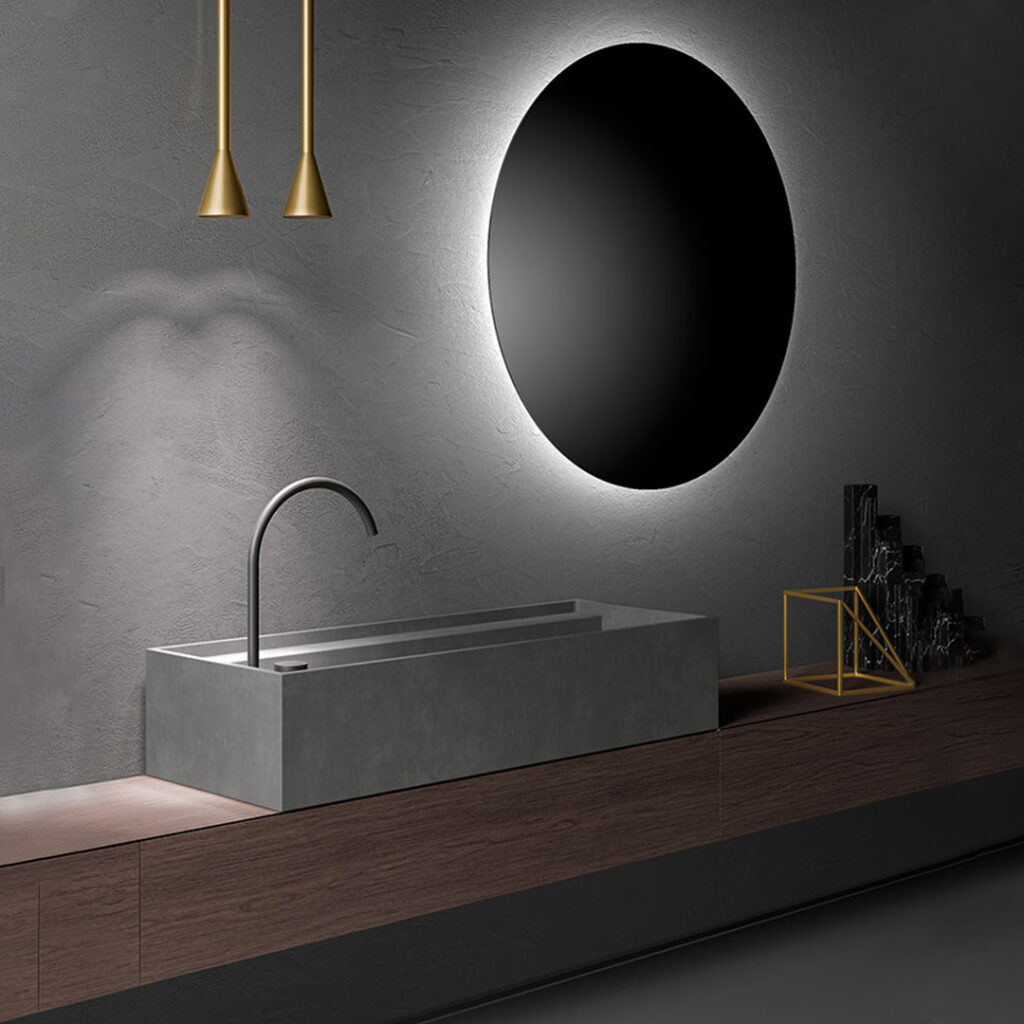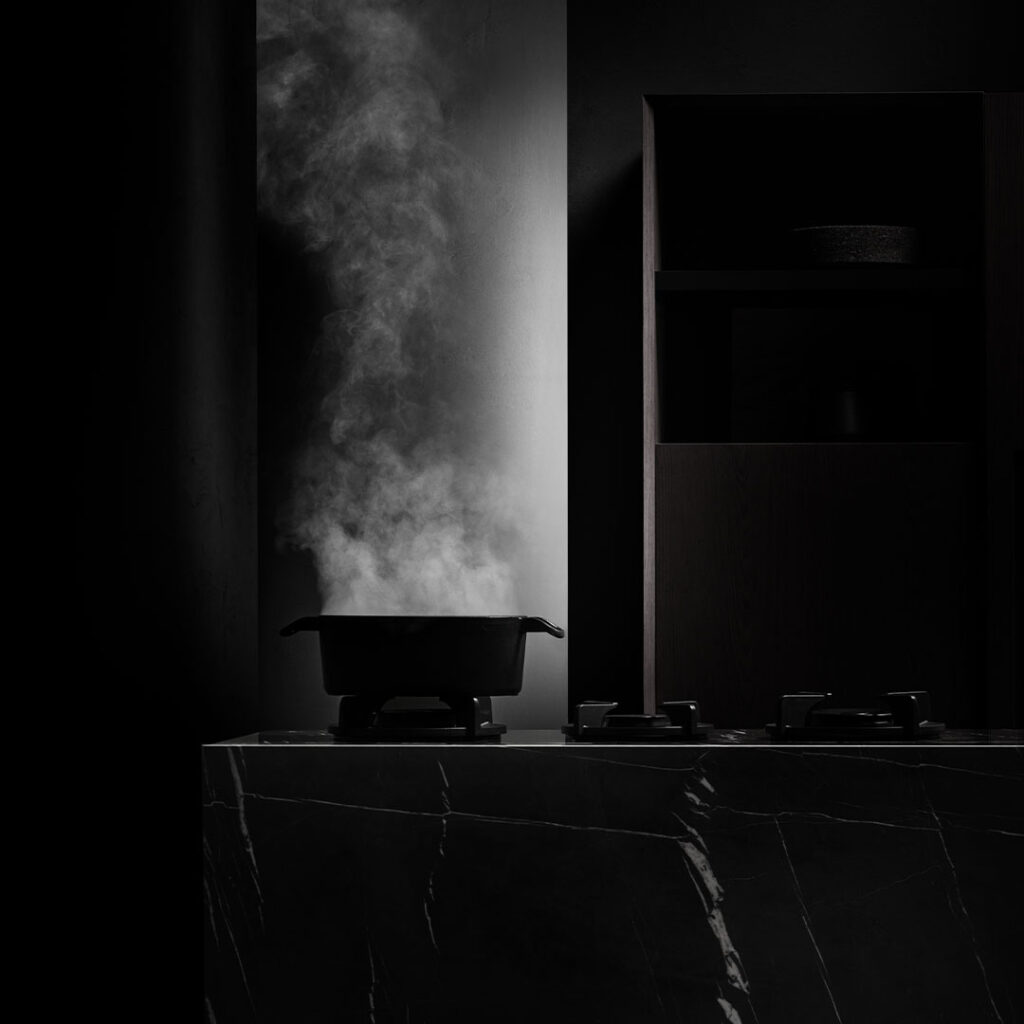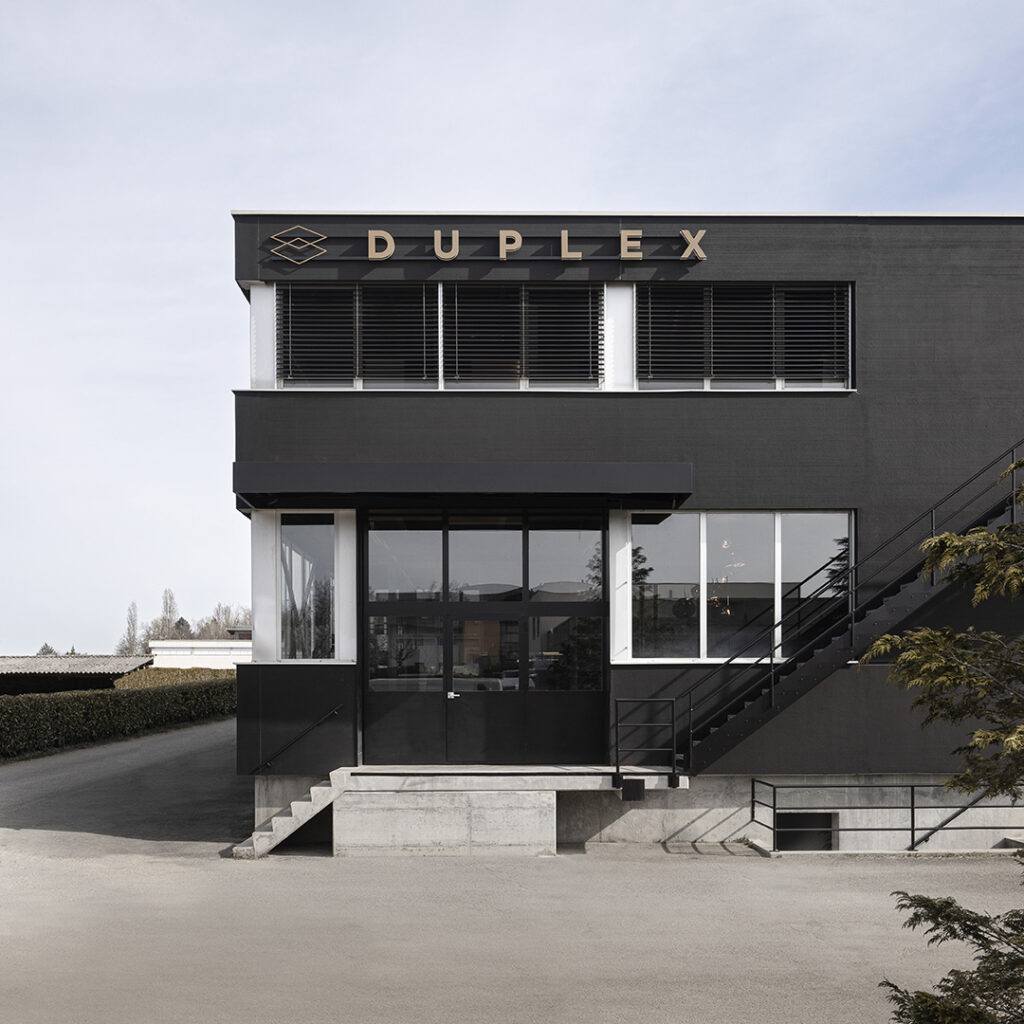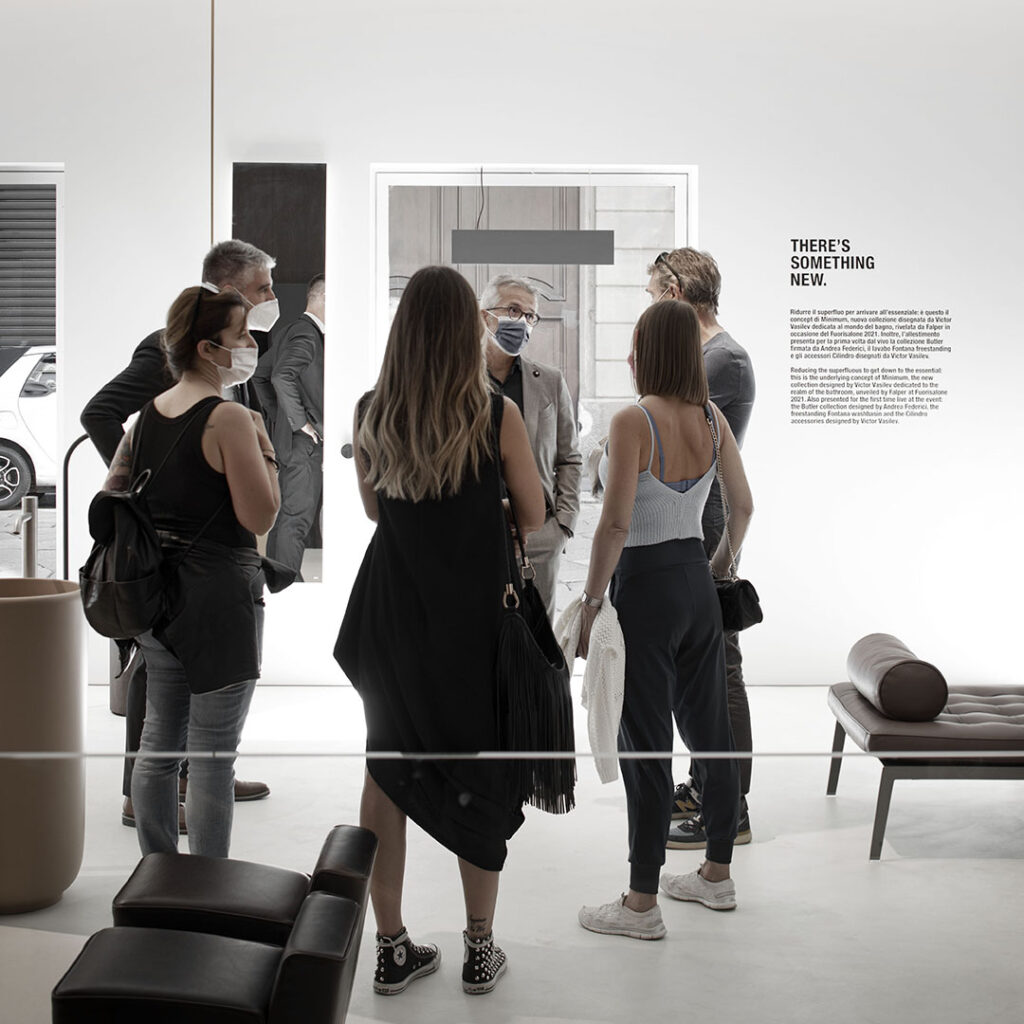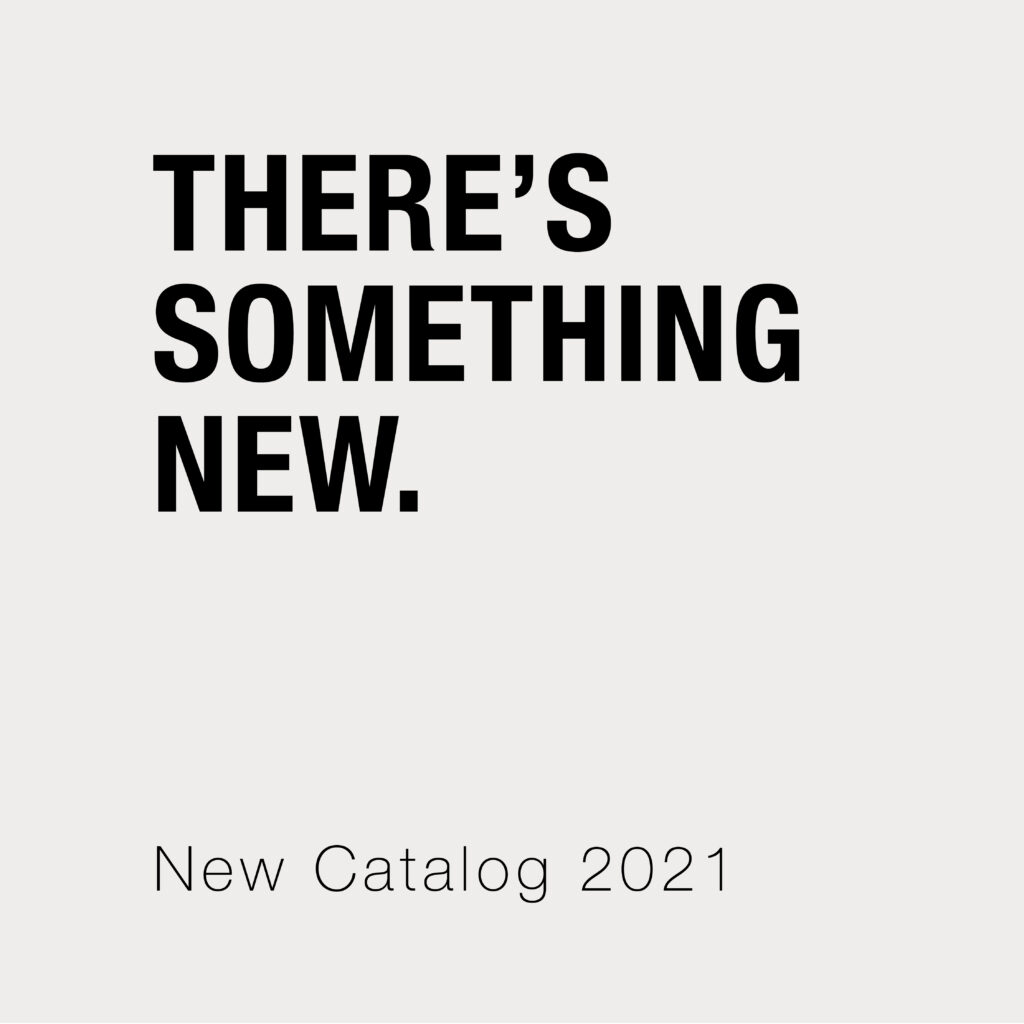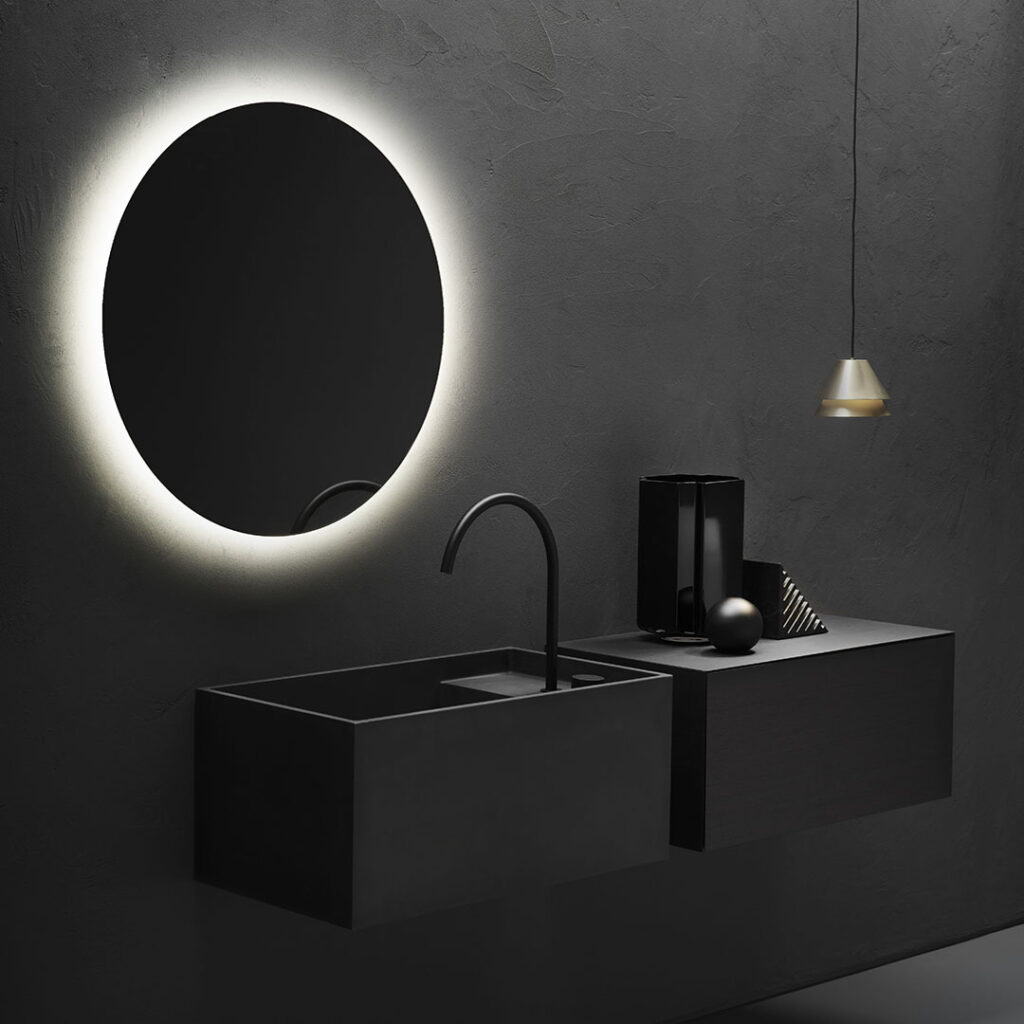Victor Vasilev: Essential Architect
Victot Vasilev was born in Bulgaria. At the age of 15, he moved to Israel. He studied architecture at the Polytechnic University of Milan and the Academy of Fine Arts in Copenhagen. After graduating, he decided to stay in Milan and opened his own studio in 2004. Projects with international firms have earned him several awards.
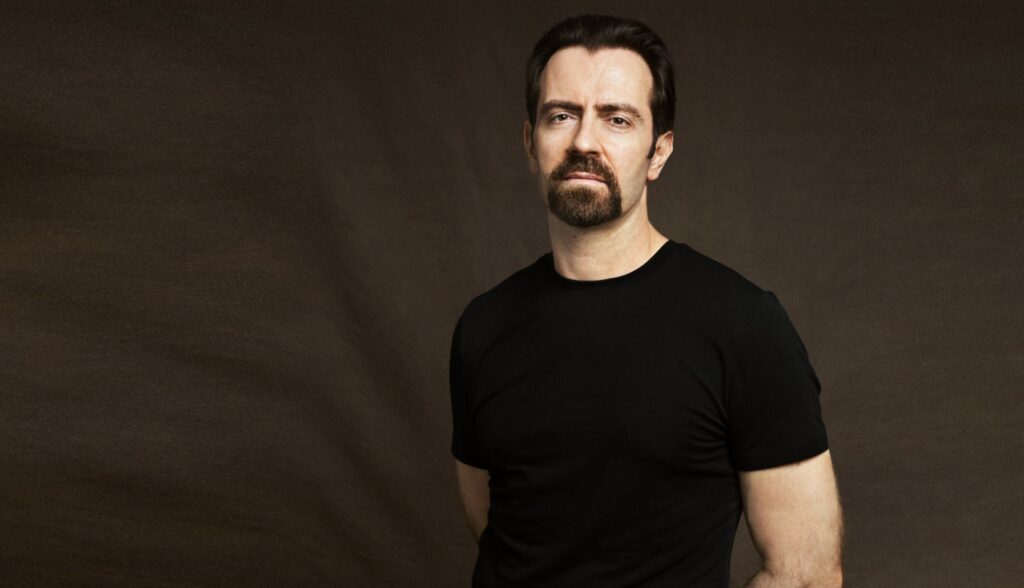
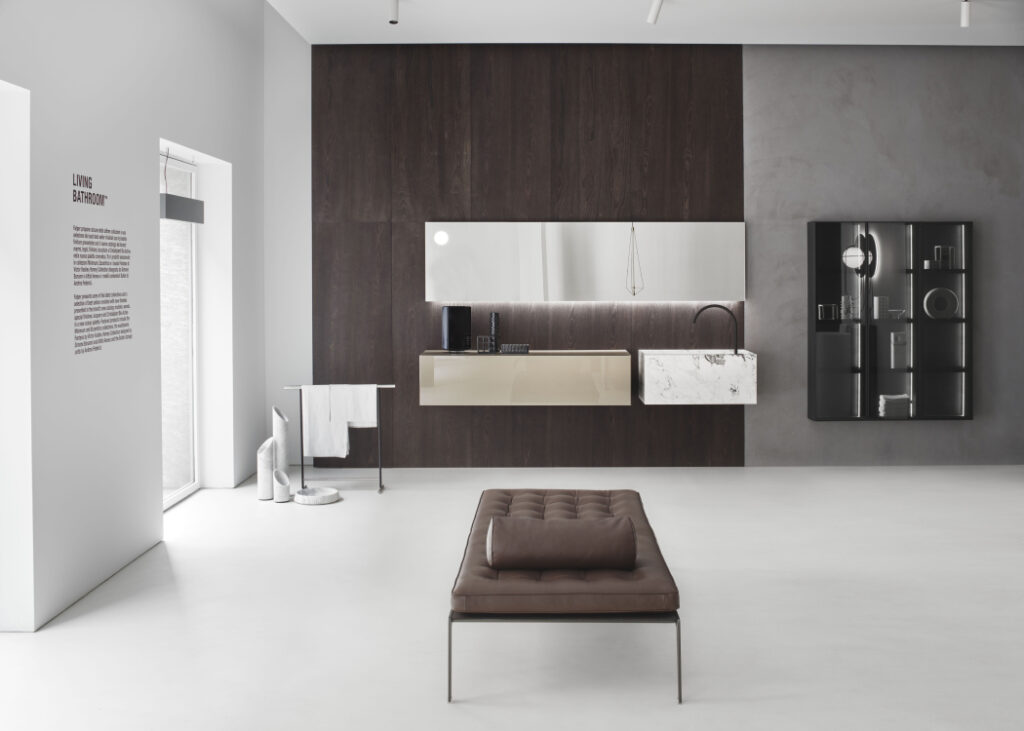
What is your approach to your design process?
The process is based on a few key points. First, constant research into the world of architecture and contemporary art. I love the artists of 1950s American Abstract Expressionism like Jackson Pollock and Mark Rothko, especially Barnett Newman. Another important point of reference is geometry, a guiding principle that always saves me from complications. Like poetry, everyone perceives it without knowing what it is. And finally, the desire to question oneself, take risks, and experiment. Going beyond the known without always playing it safe.
How did you envision the bathroom line you reinterpreted for Falper?
In 2018, I began my collaboration with Falper. I found Luca Fallavena to be an excellent partner; he perceived a quality in my rigorous style that he wanted to introduce to the company. I like the bathroom because it transcends its functionality, more so than the living room. There’s a growing desire to raise the bar. Many new materials and a wealth of technology have been introduced. In this context, there’s still room for invention.
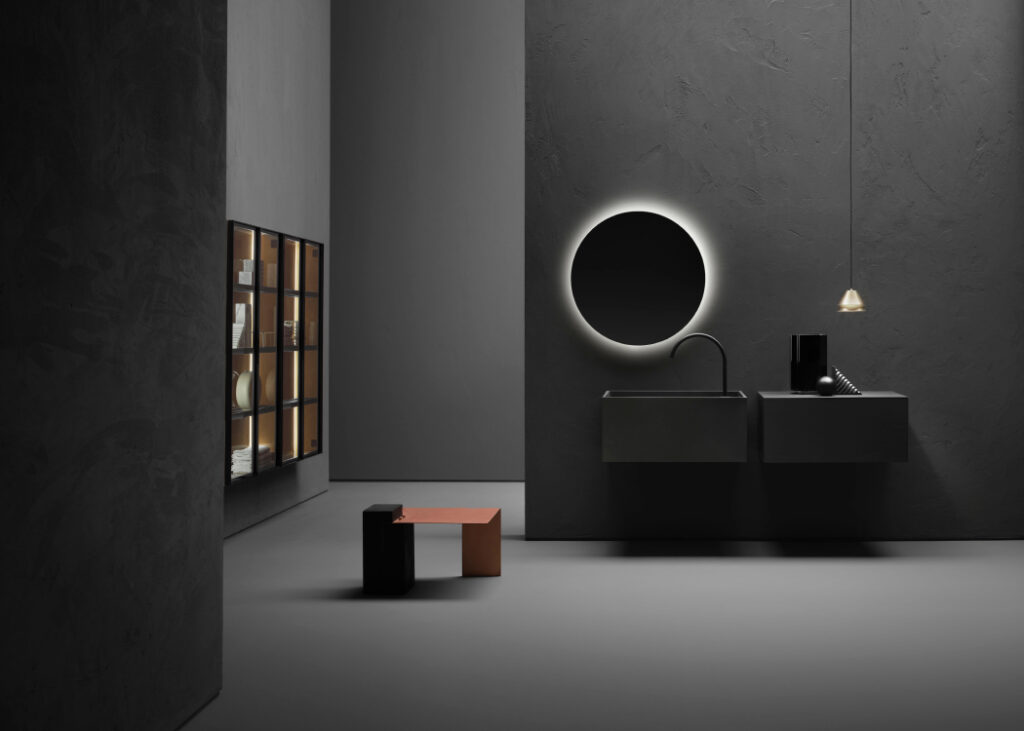
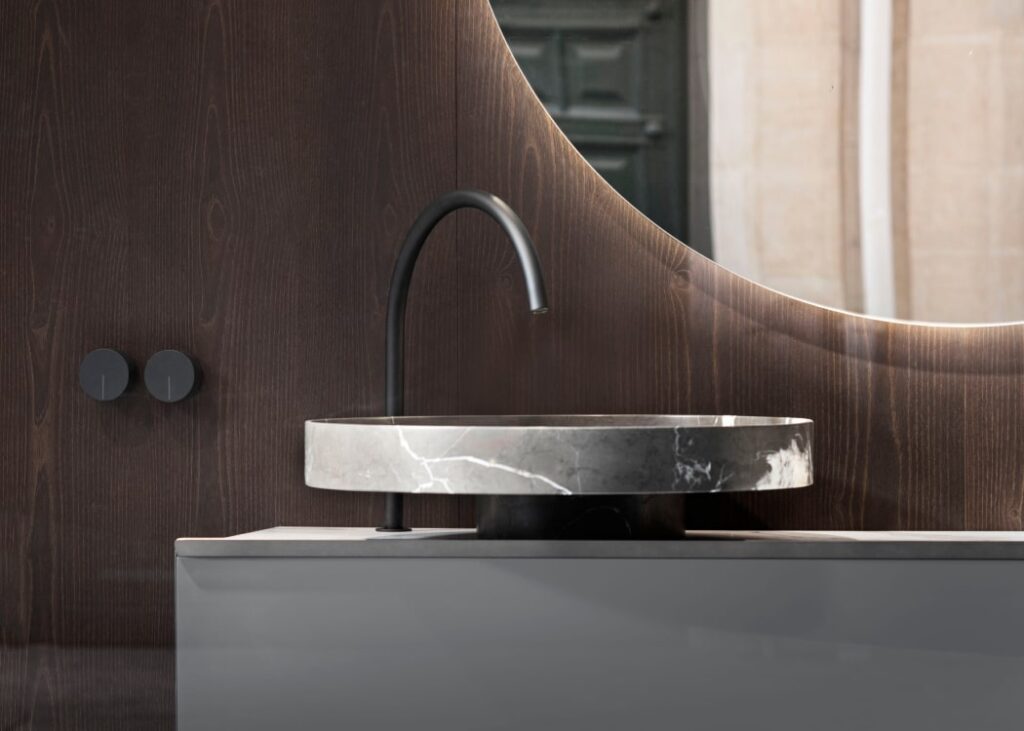
Have you focused on the essential?
Essential is a lifestyle choice. It’s my vision of the world, which is reflected in my projects. Buying a few things but of the highest quality, making a few things but the right ones for you. I chose Italy as my new home; here you find the essence of beauty in its purest form, in the landscape, in history, but also in relationships with people.
What role does sustainability play in your work?
My responsibility as a designer is to imagine the value of eternity as a constraint. An object must stand the test of time and is therefore sustainable. The durability of a chair, like Giò Ponti’s Superleggera or Mies van der Rohe’s Barcellona armchair, is inherently sustainable. We all want to leave a better world.
Do you believe this process will succeed despite rapidly evolving trends?
Awareness of quality isn’t fleeting. The true center of gravity in this equation is the consumer, who must understand the impact of their choices.
Do you enjoy creating things that will stay with people for as long as possible?
I’m curious to see how things will evolve in the coming years. I enjoy the challenge of design, regardless of size. Traveling the world, you see many beautiful things. I remain optimistic about the world as well. I love Dostoevsky’s quote: “The darker the night, the brighter the stars.”
